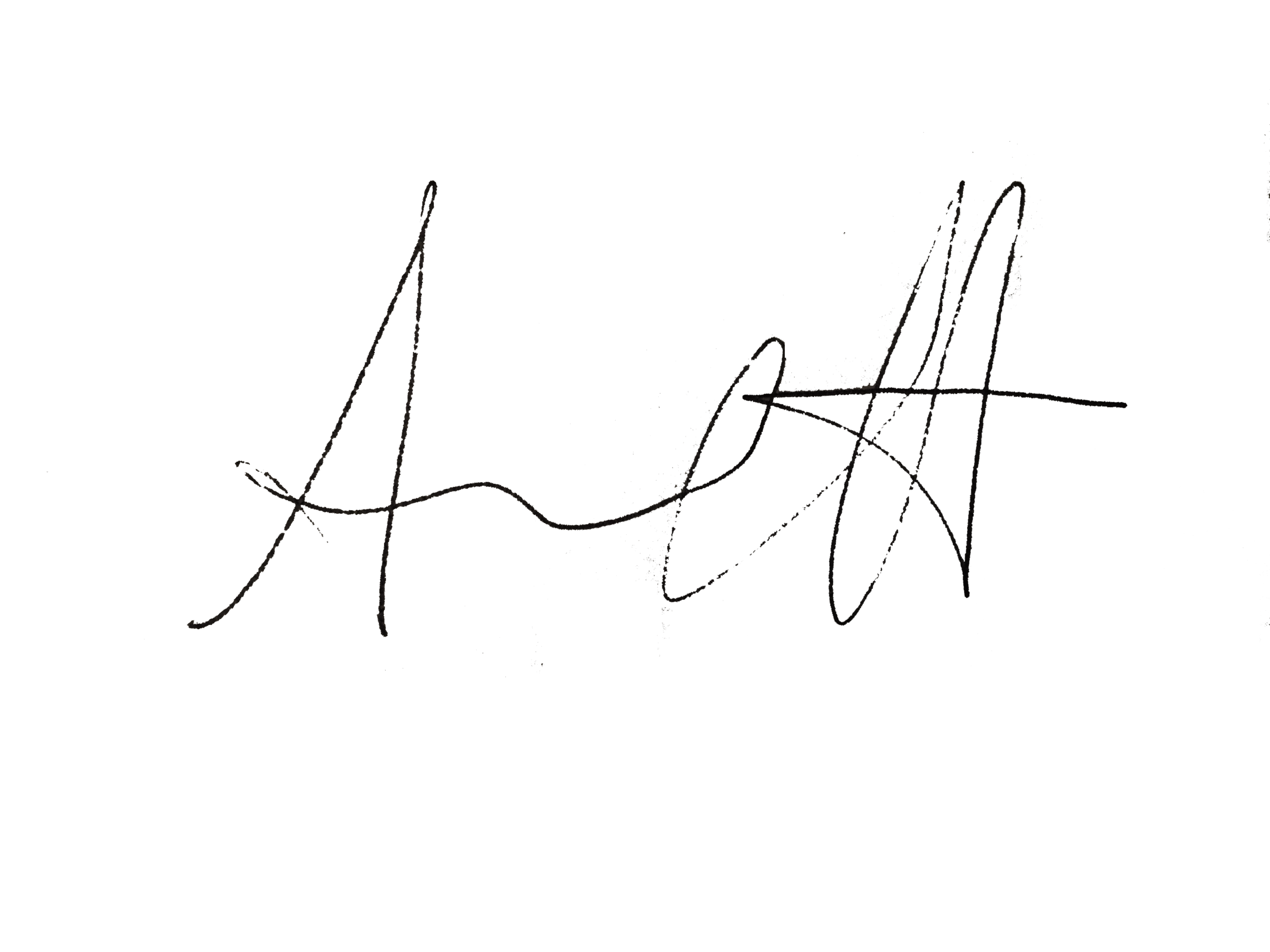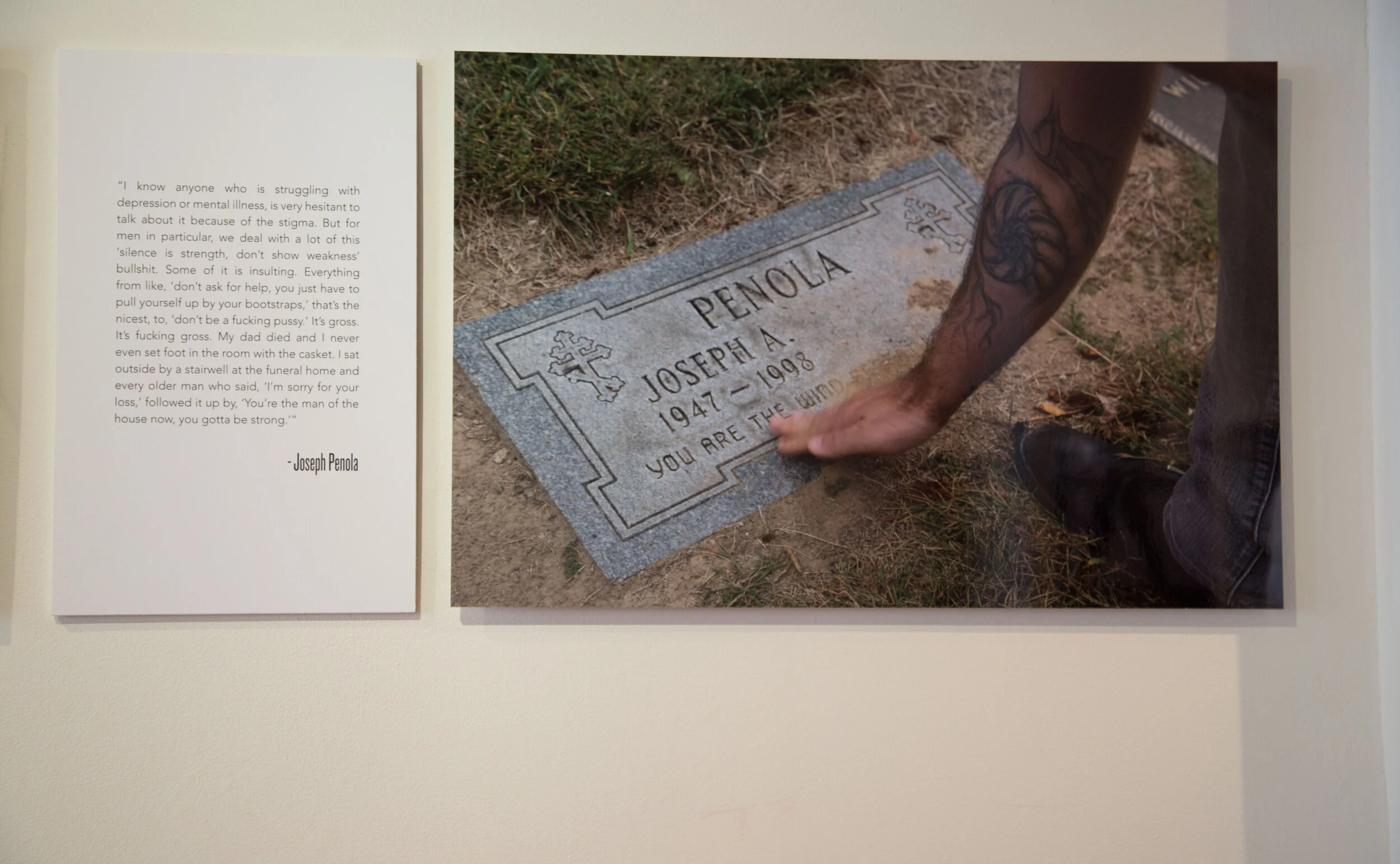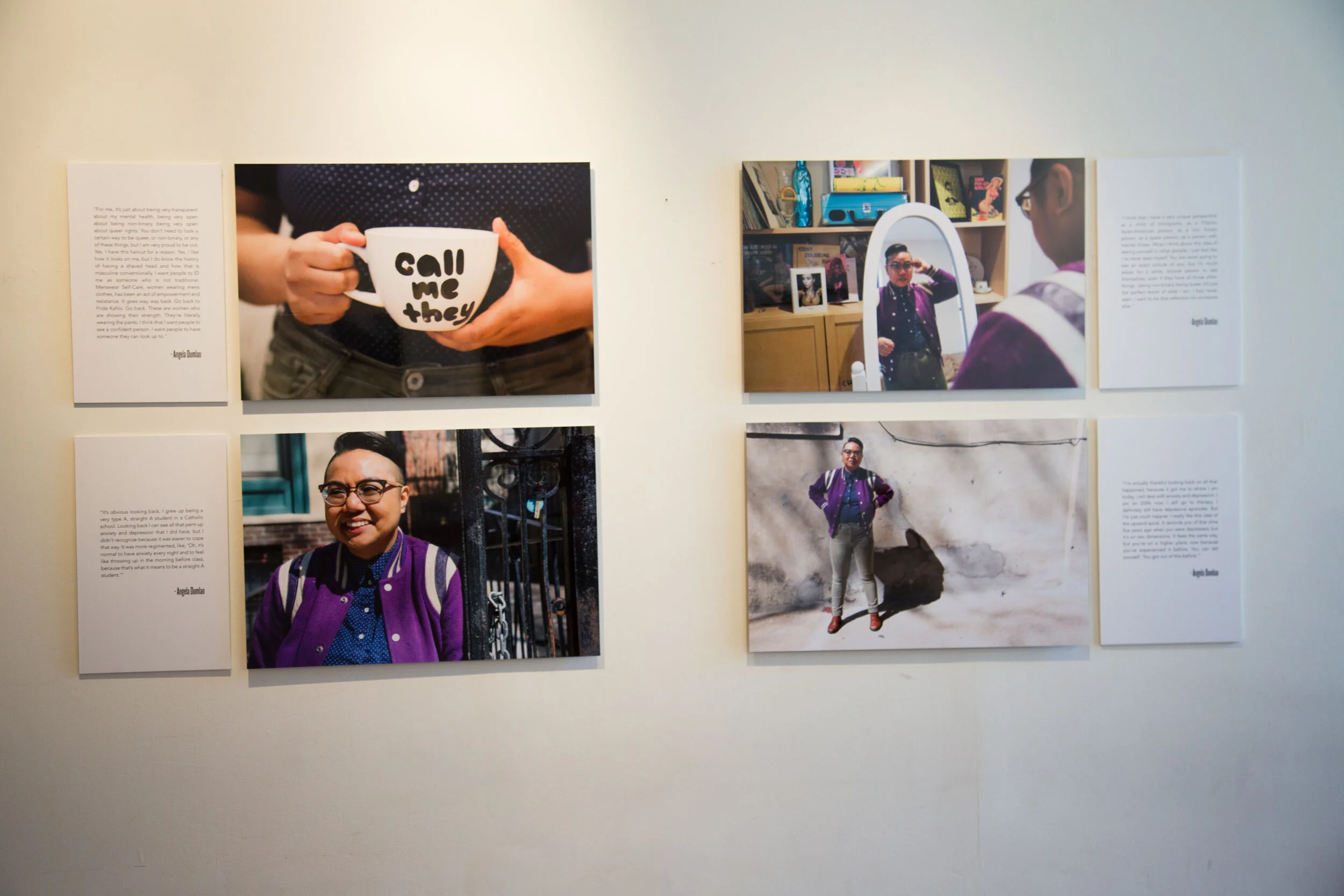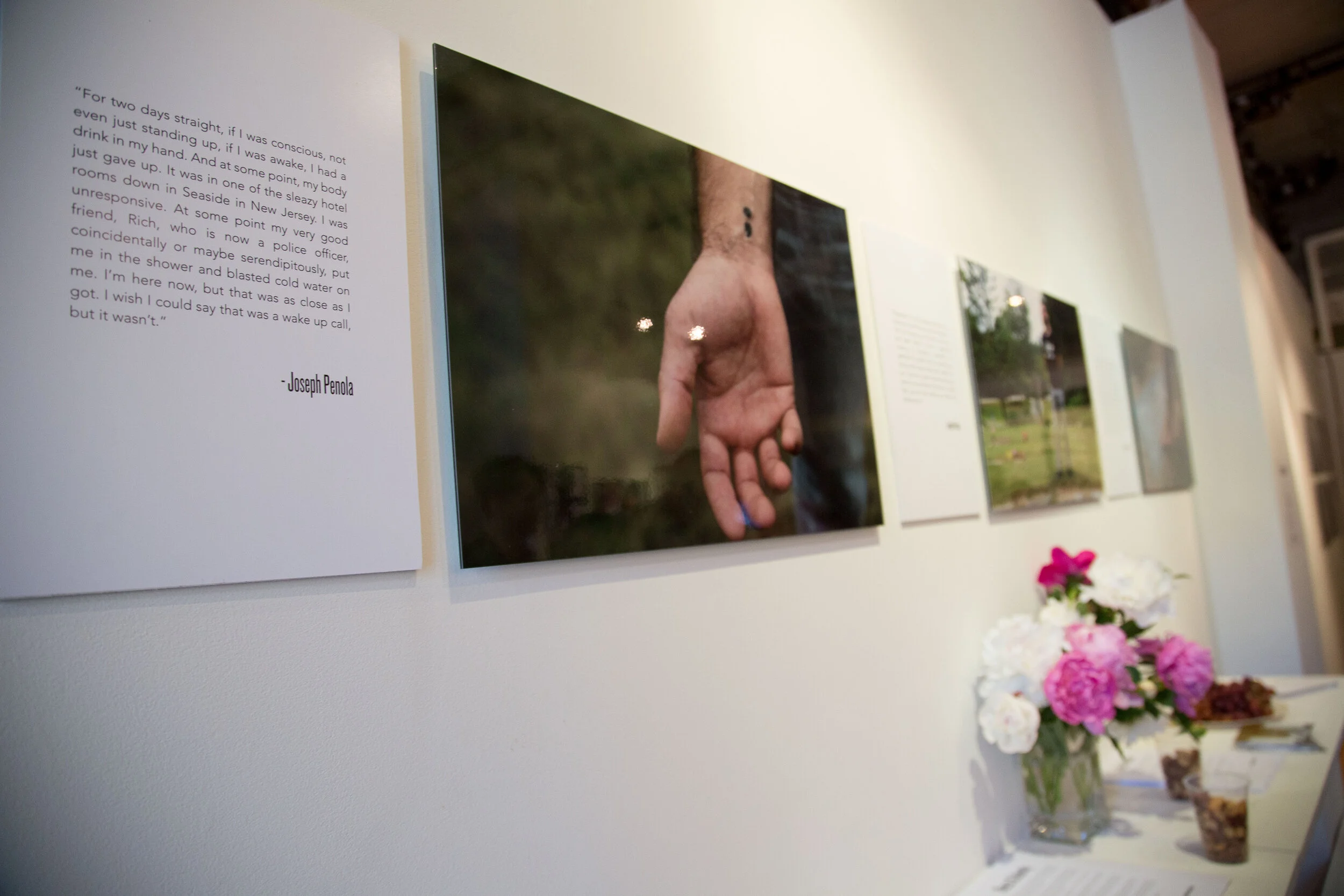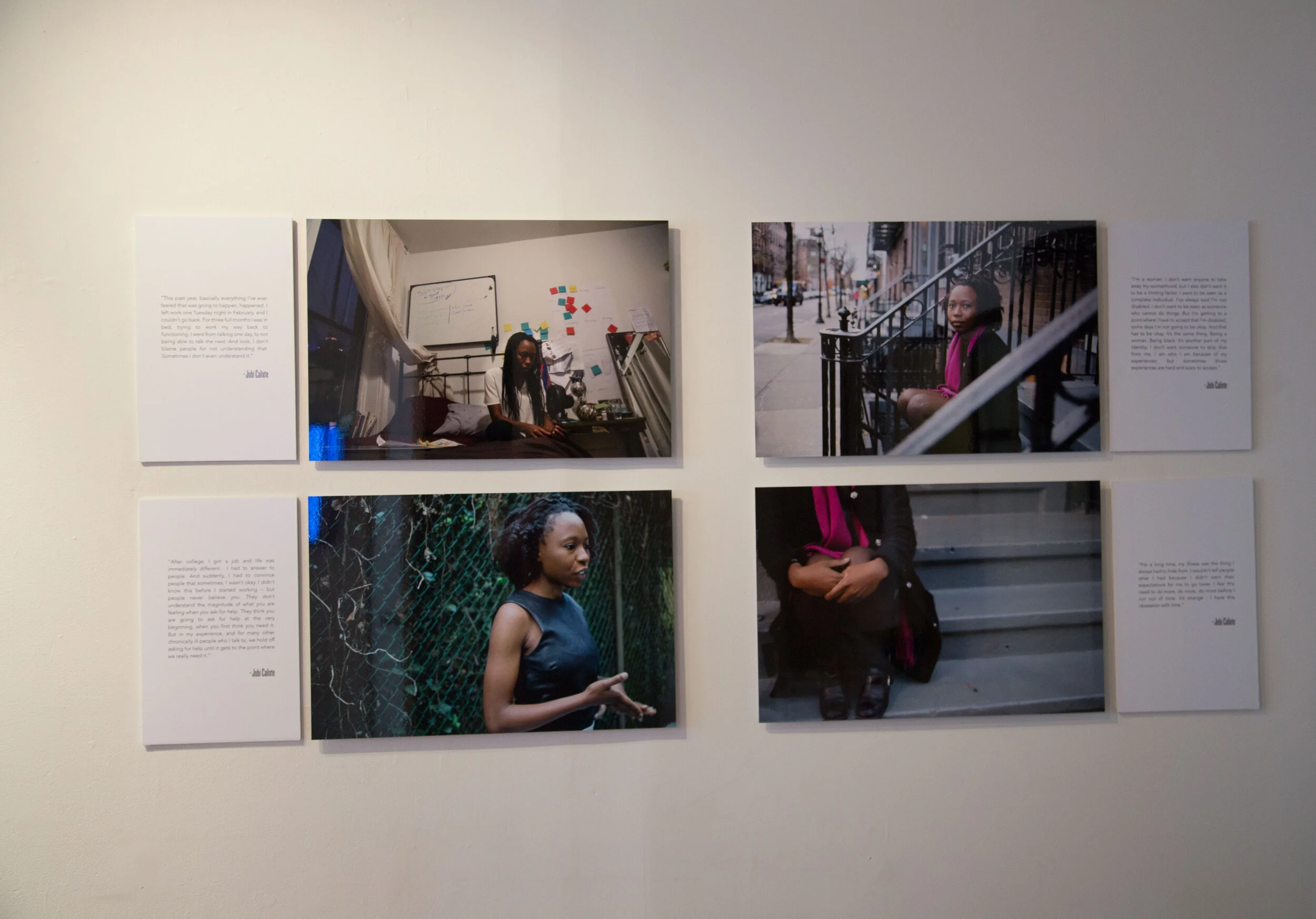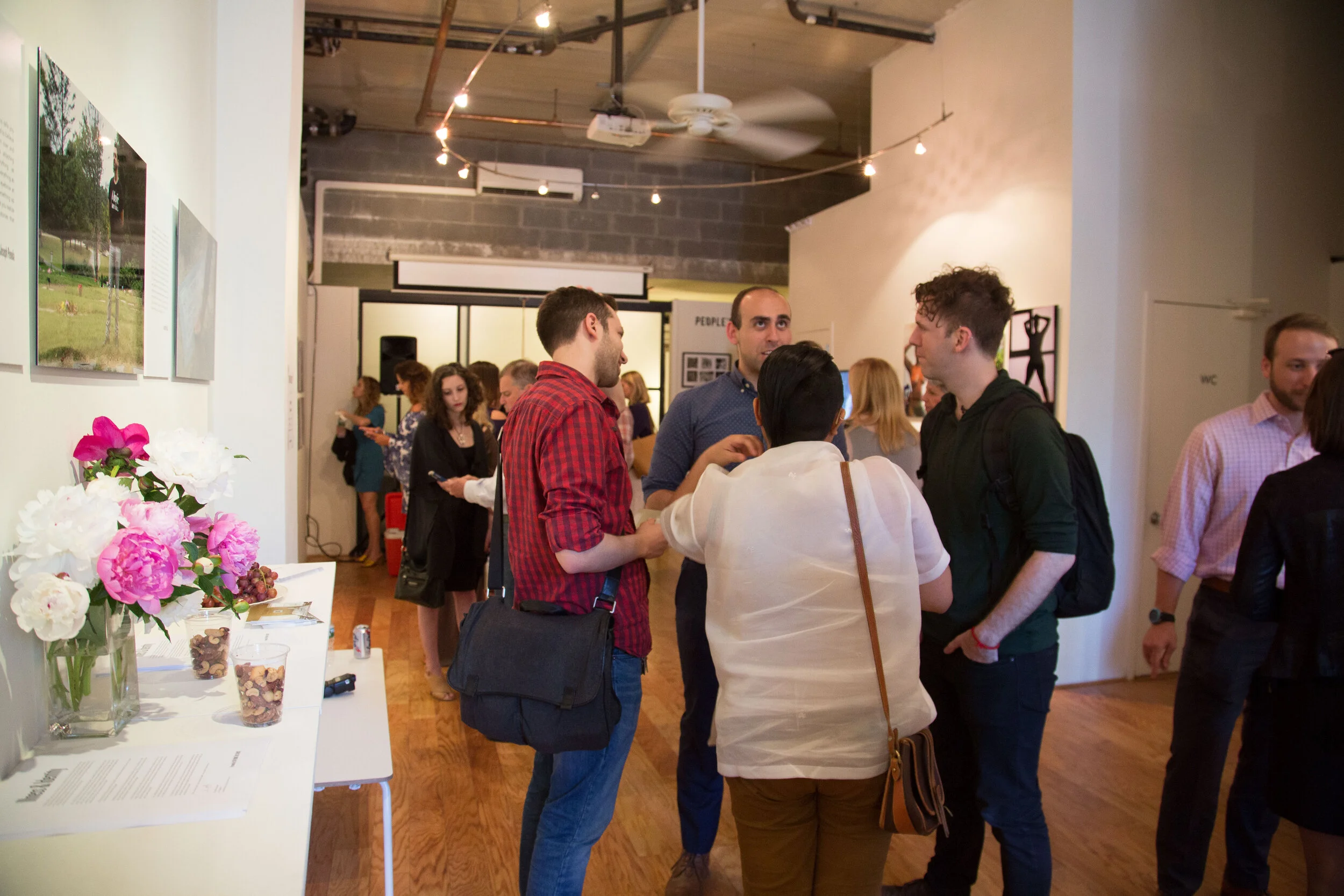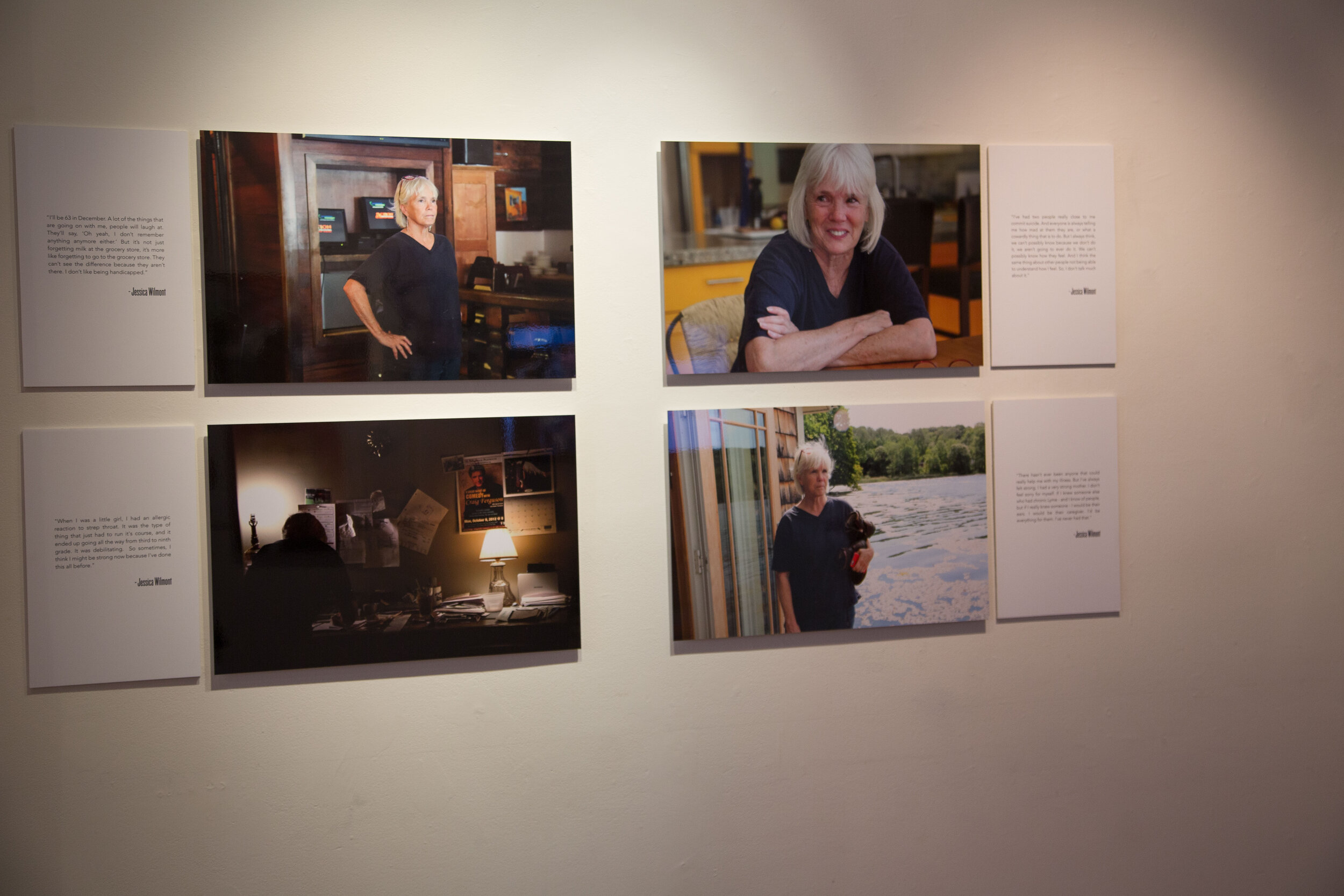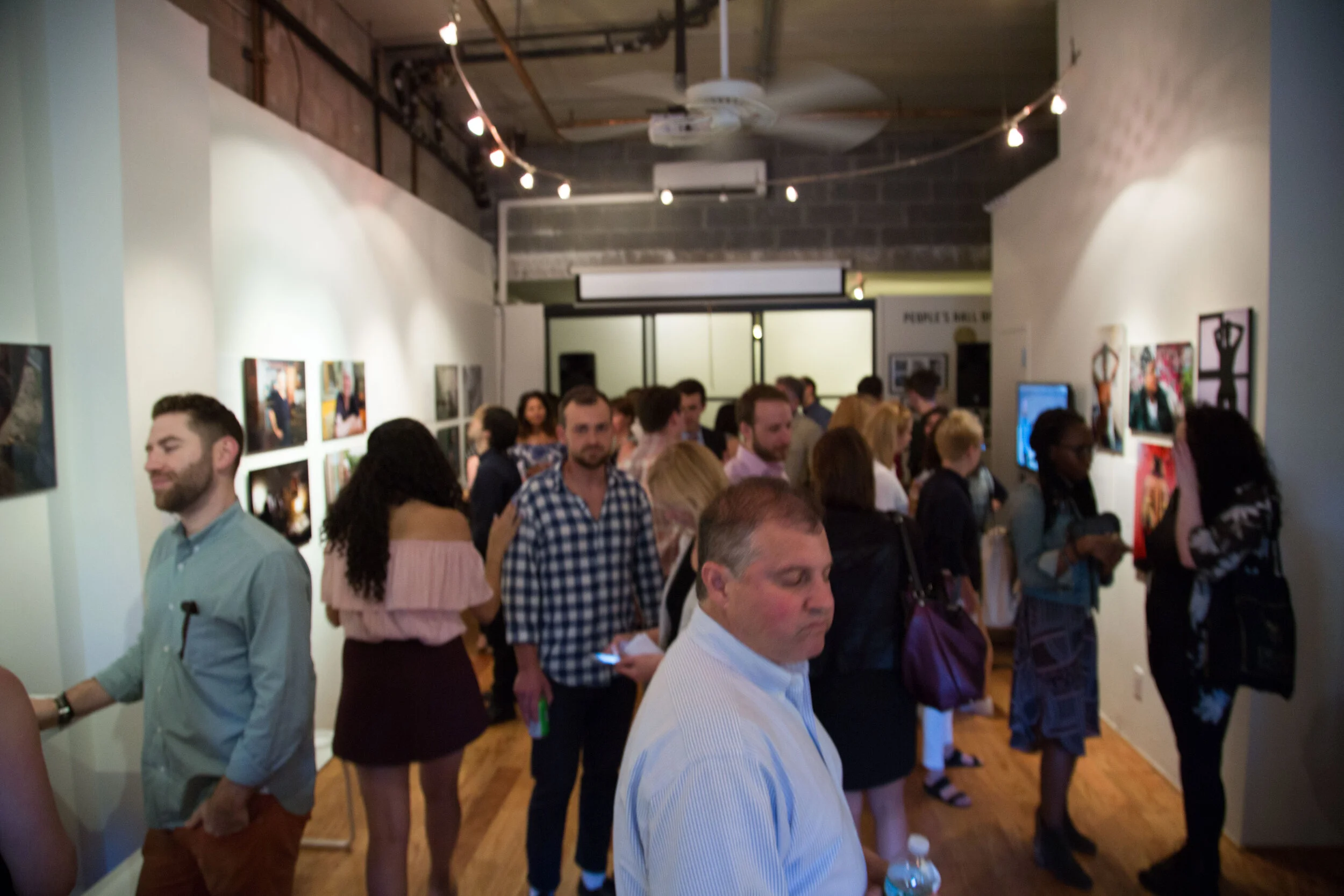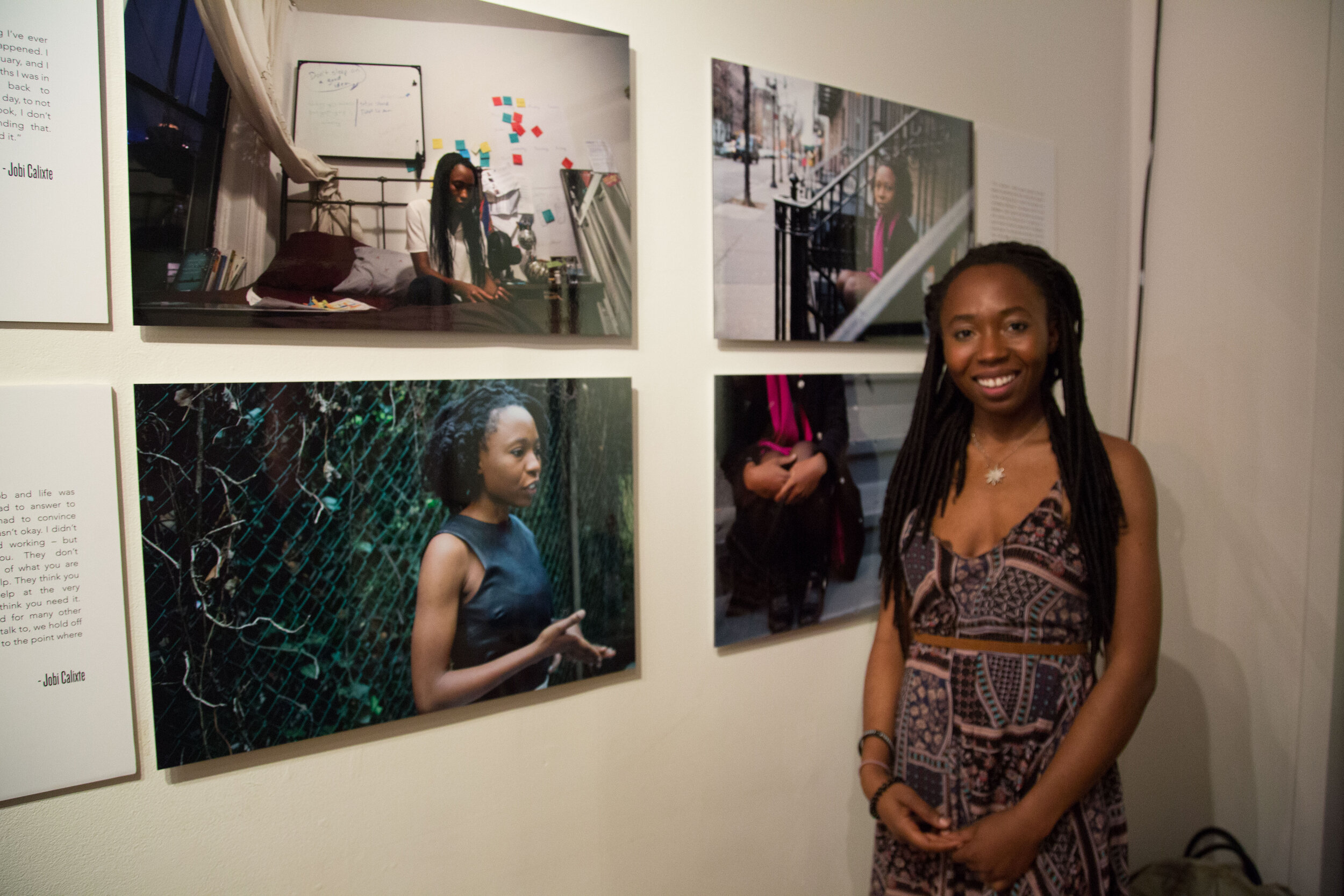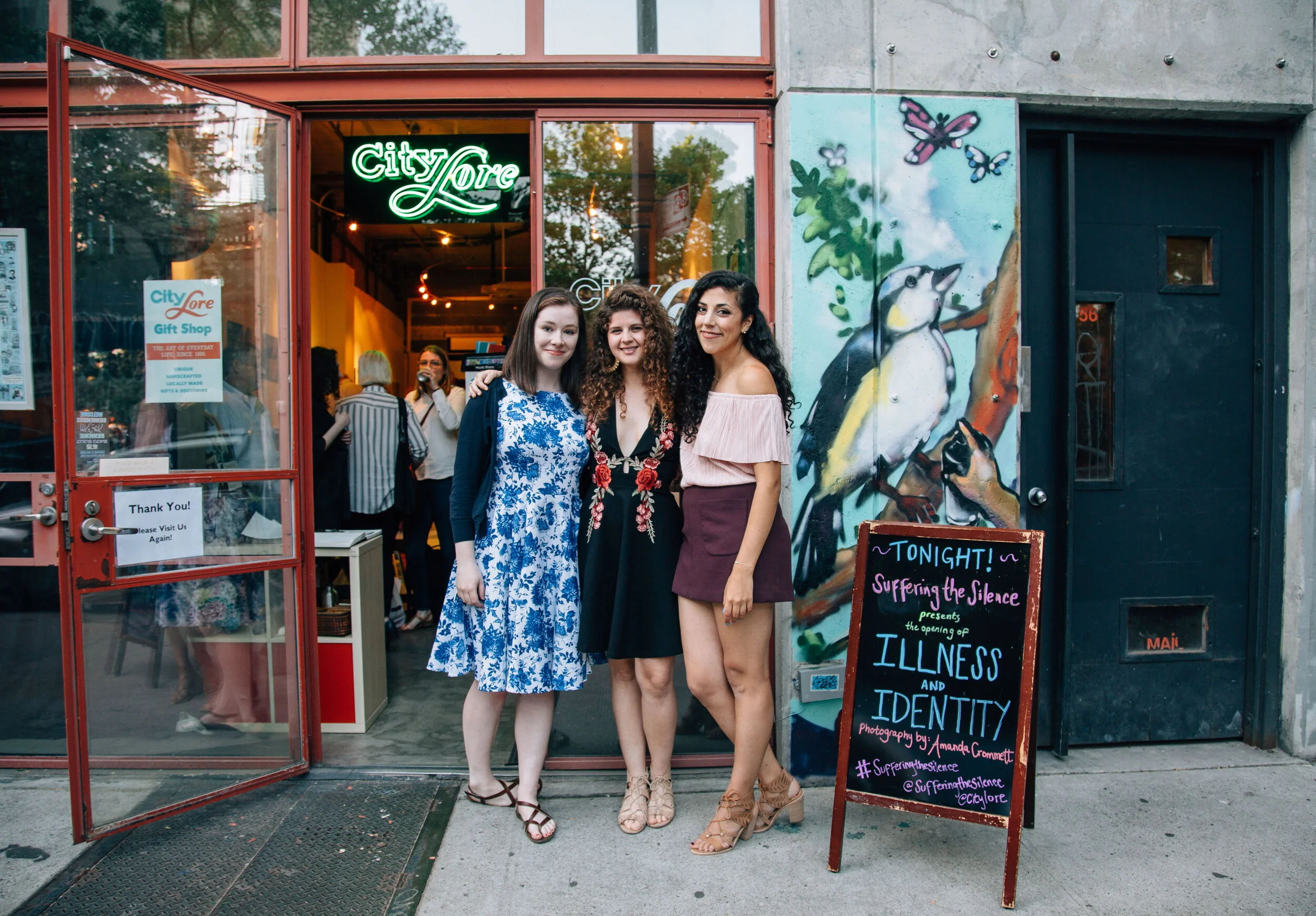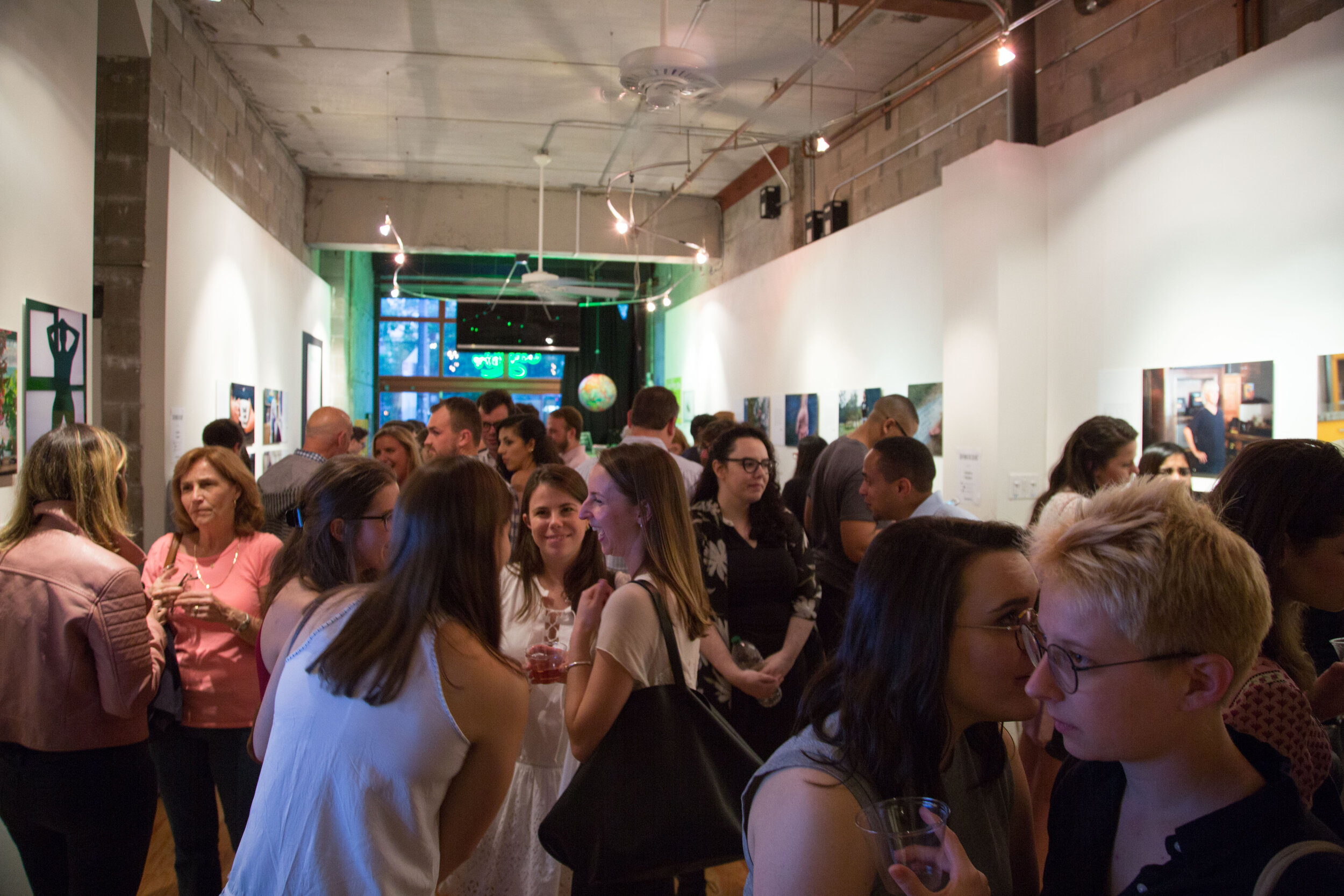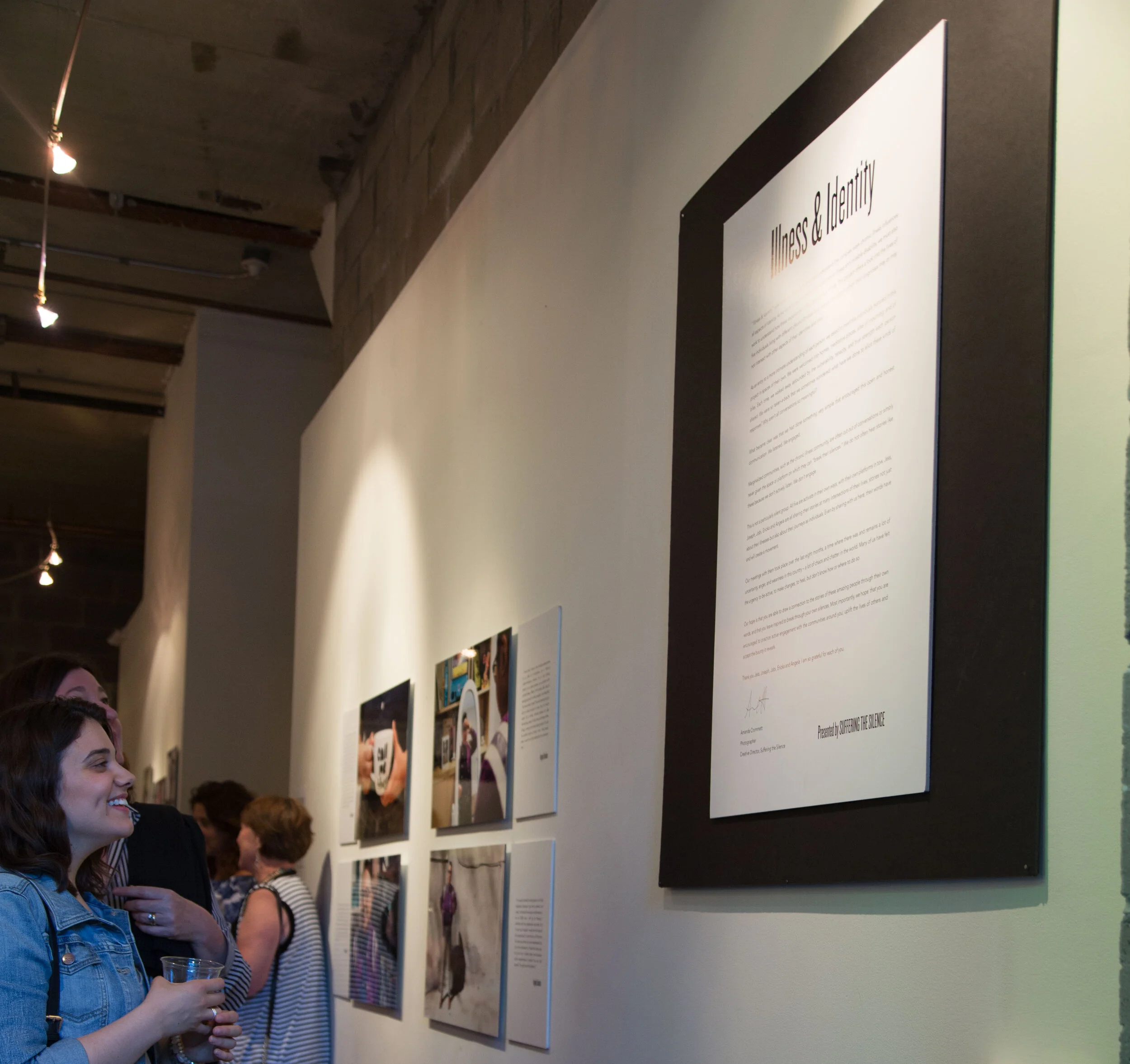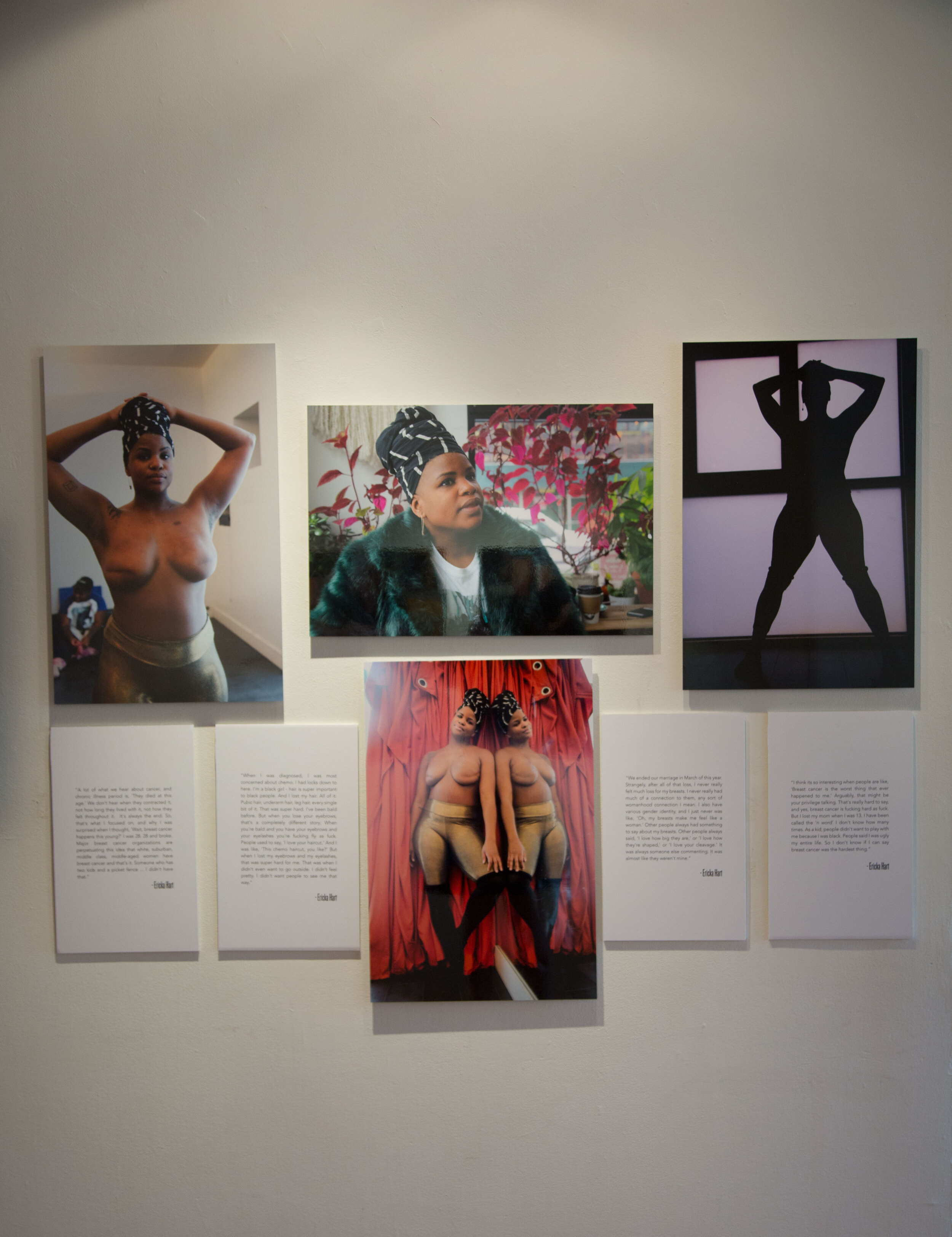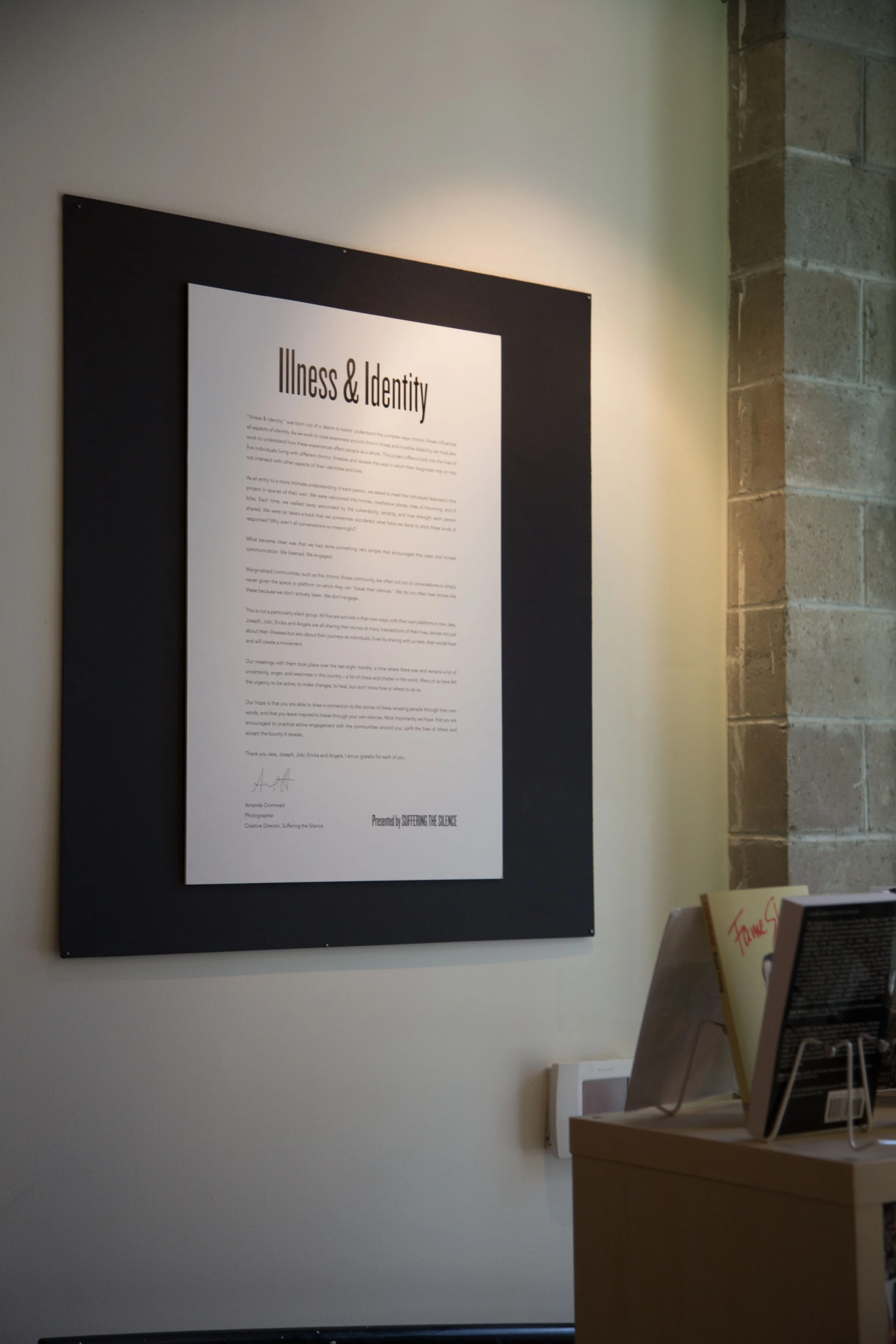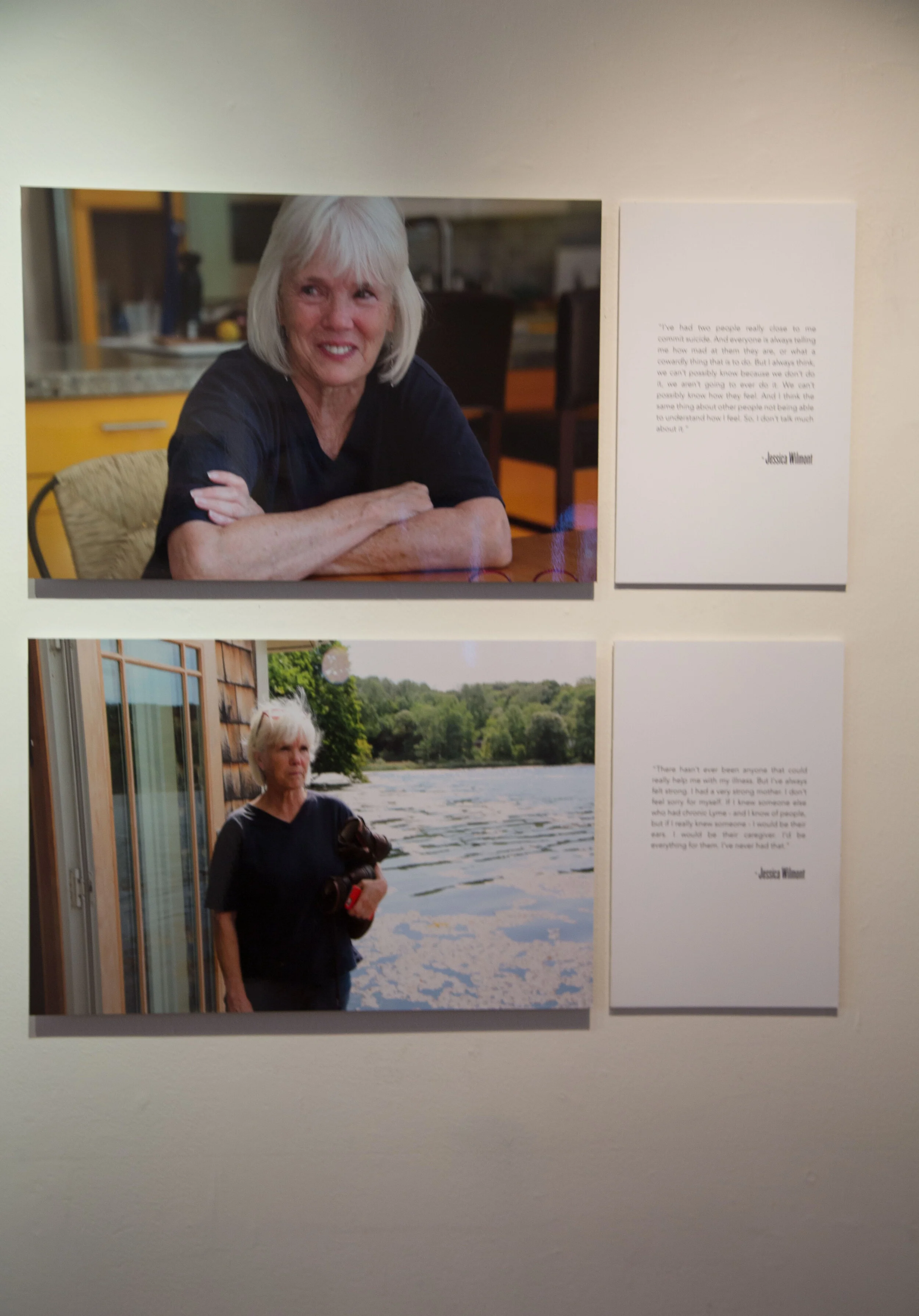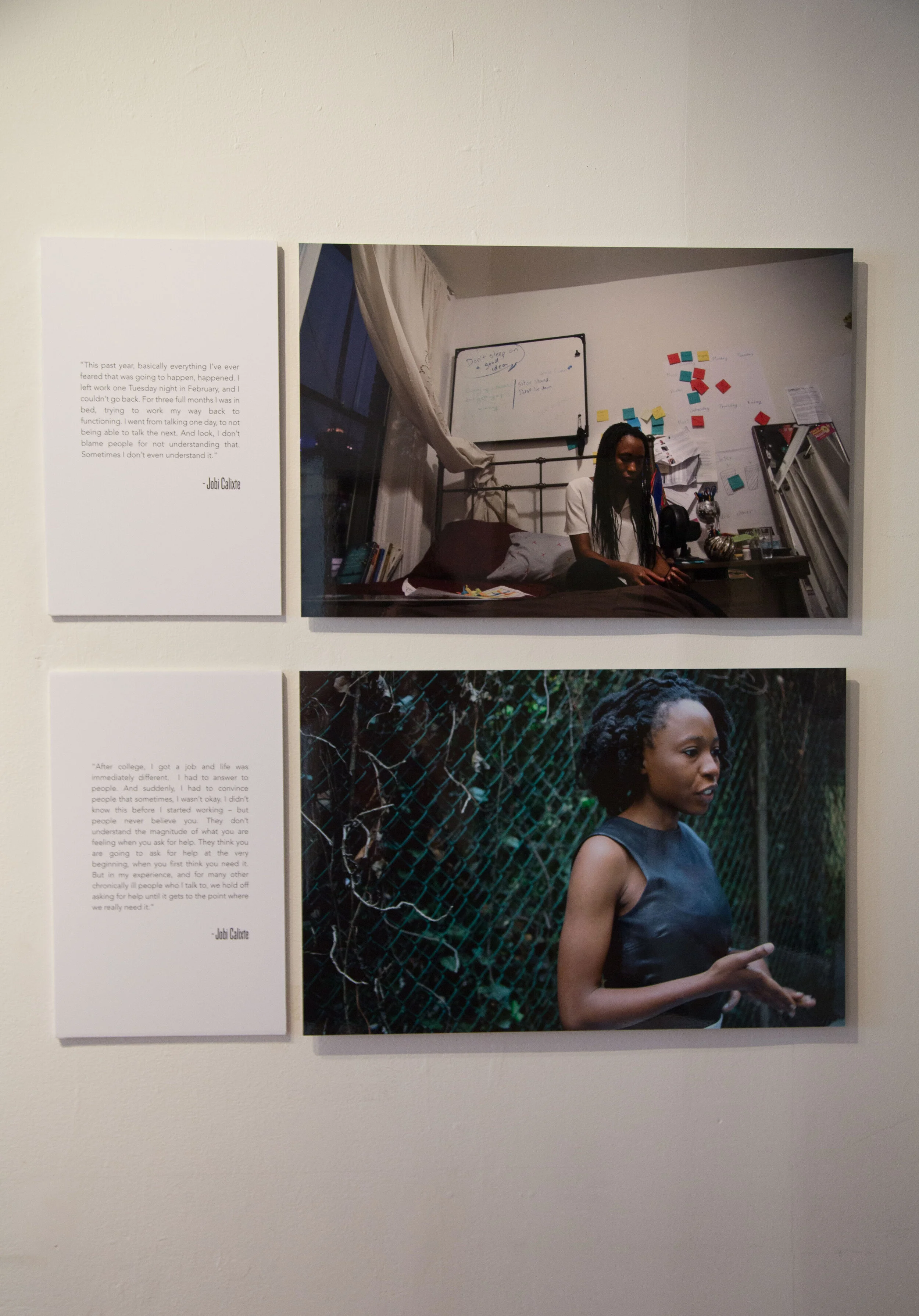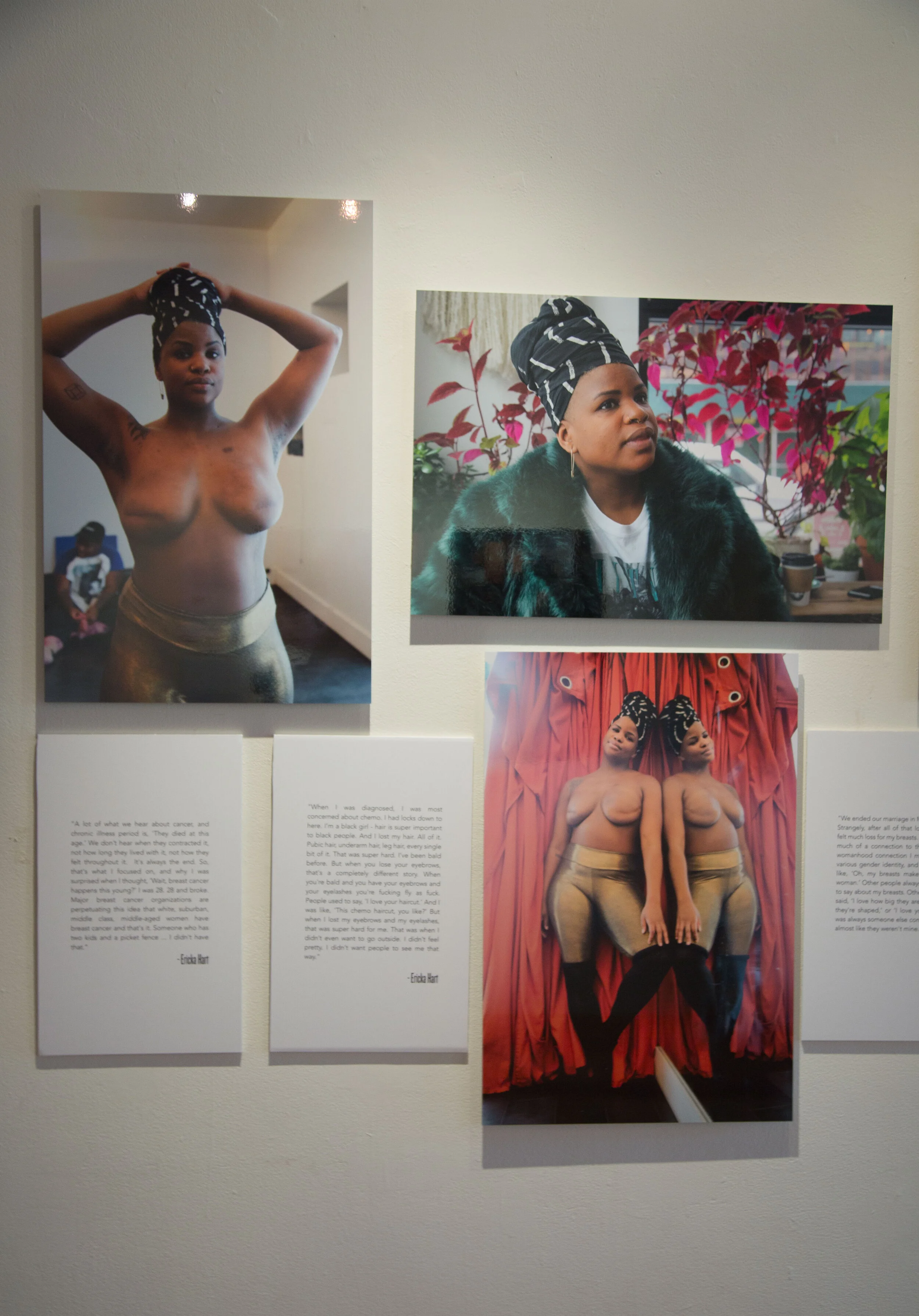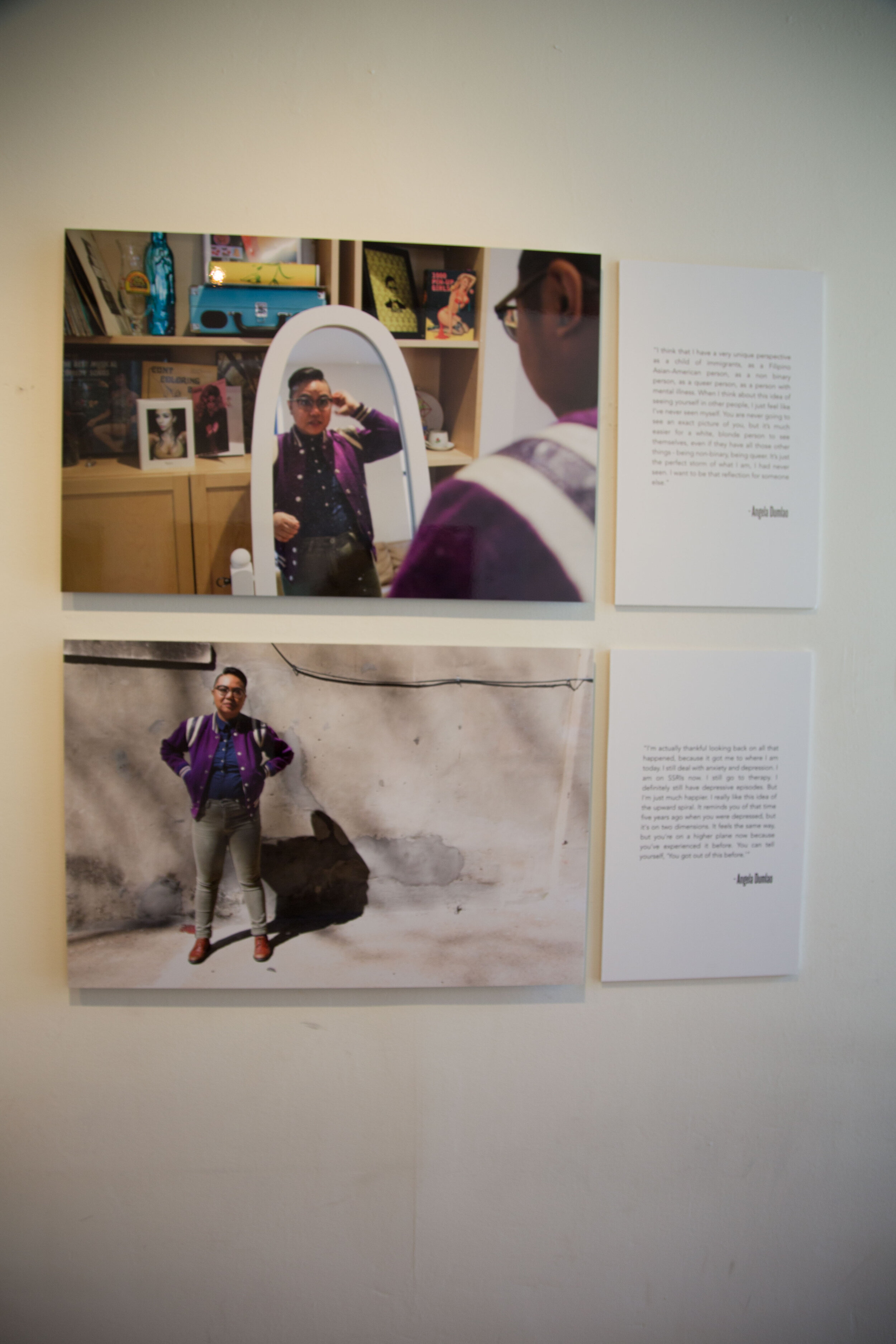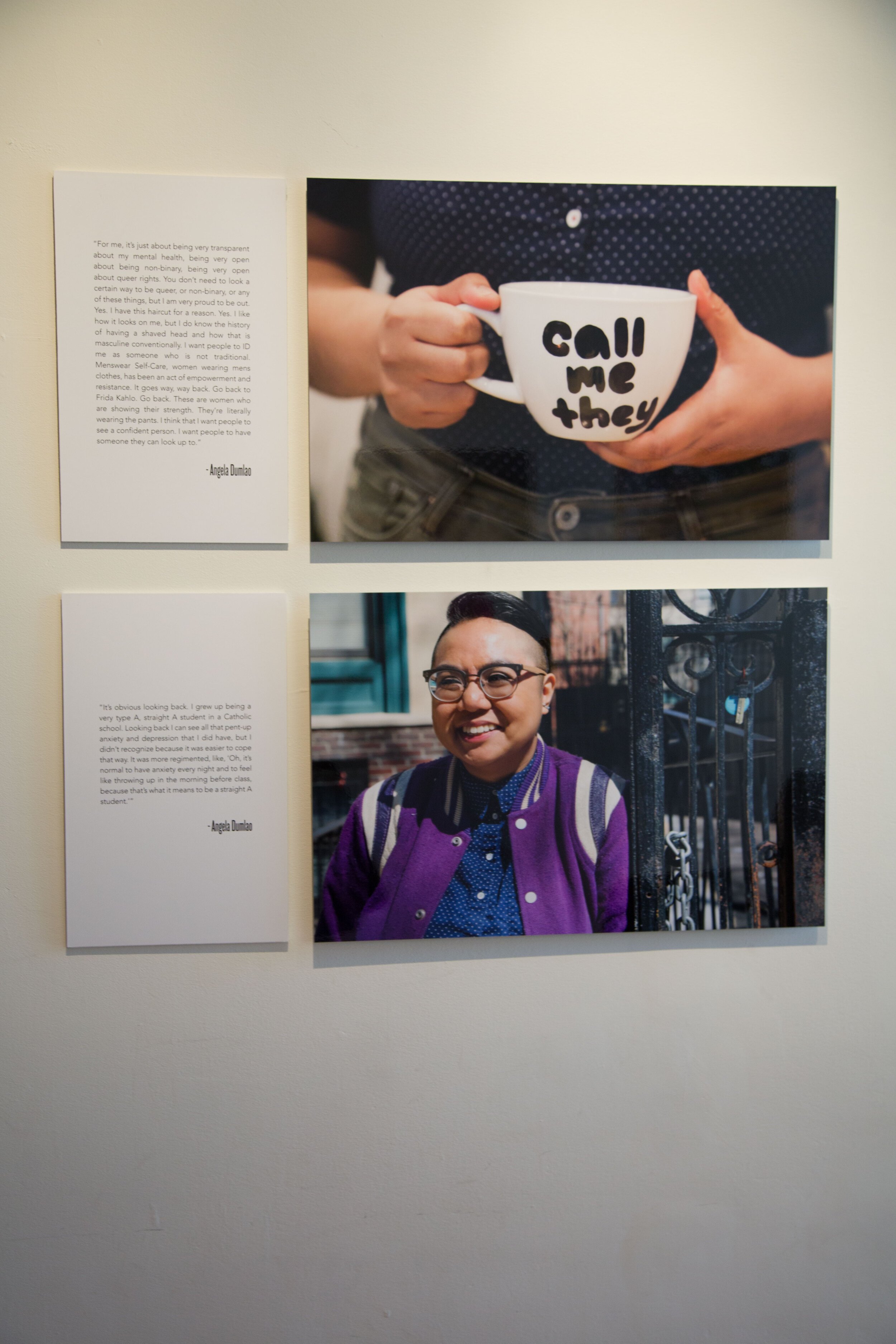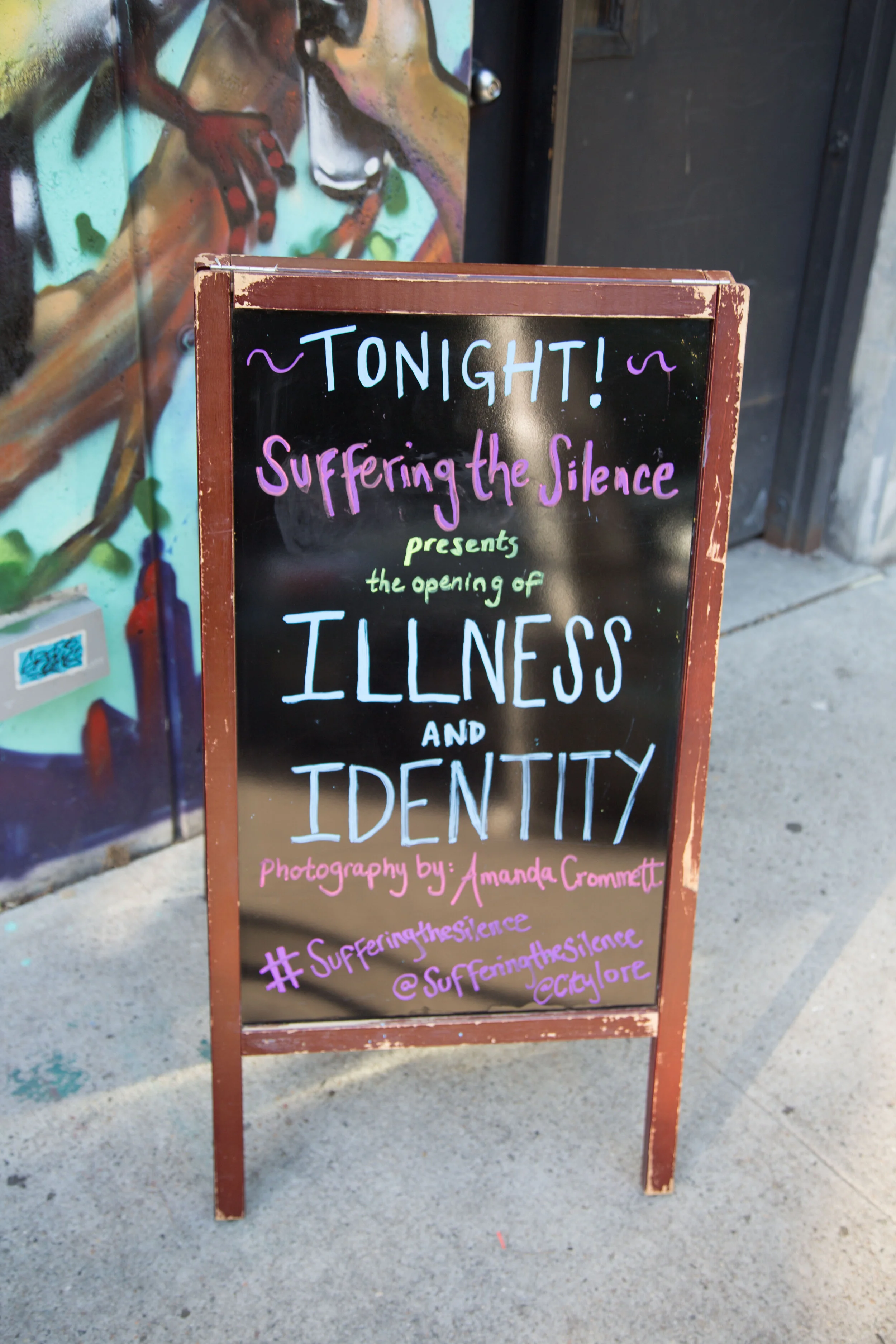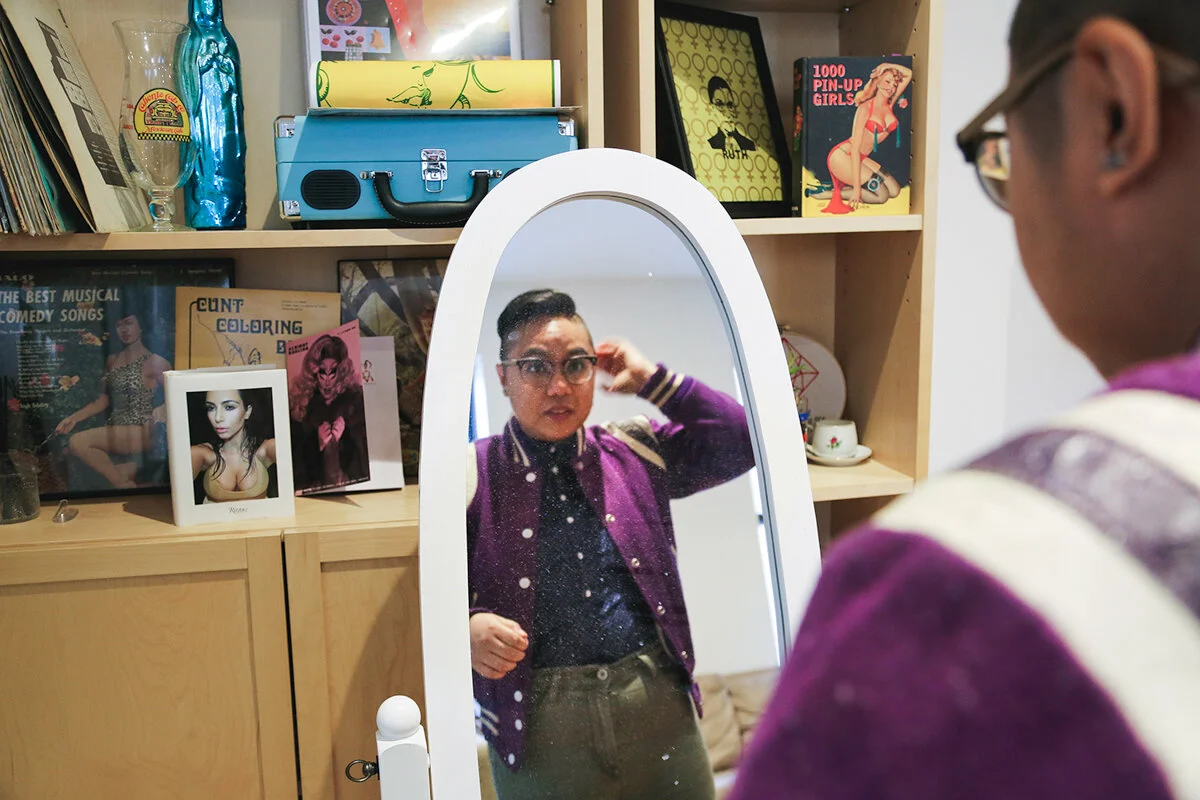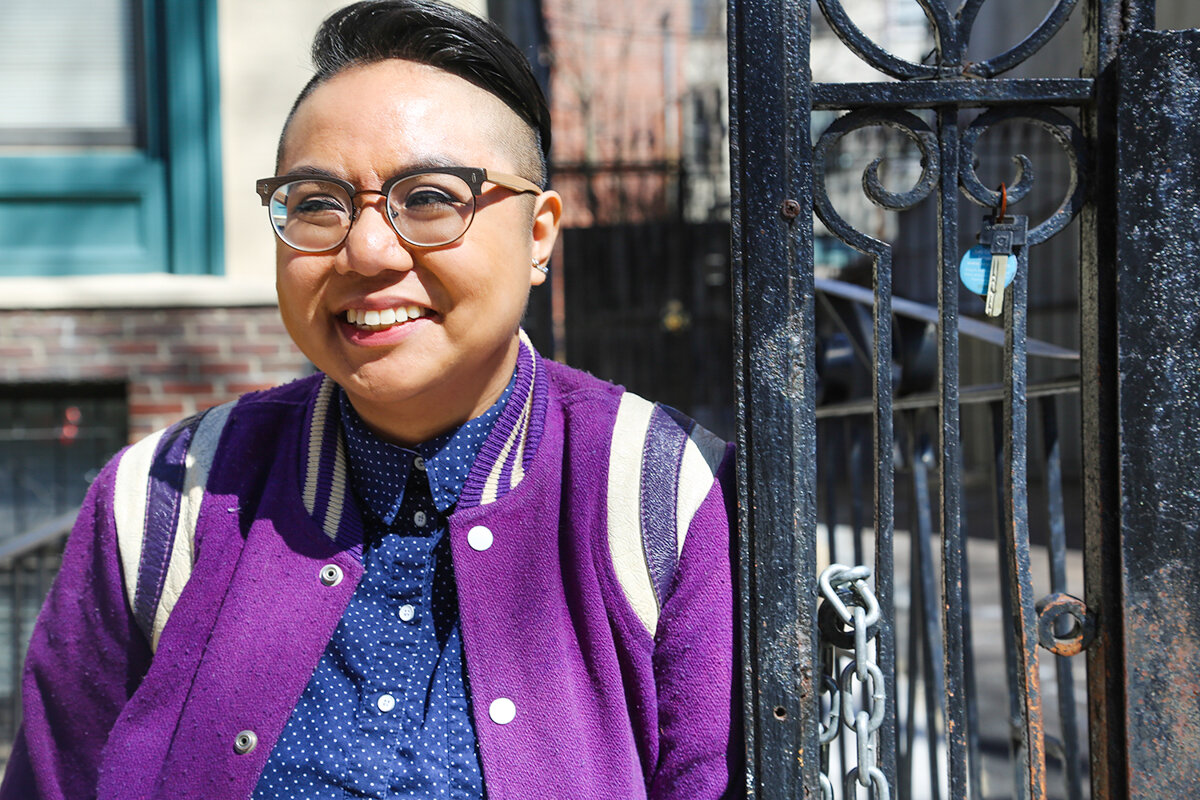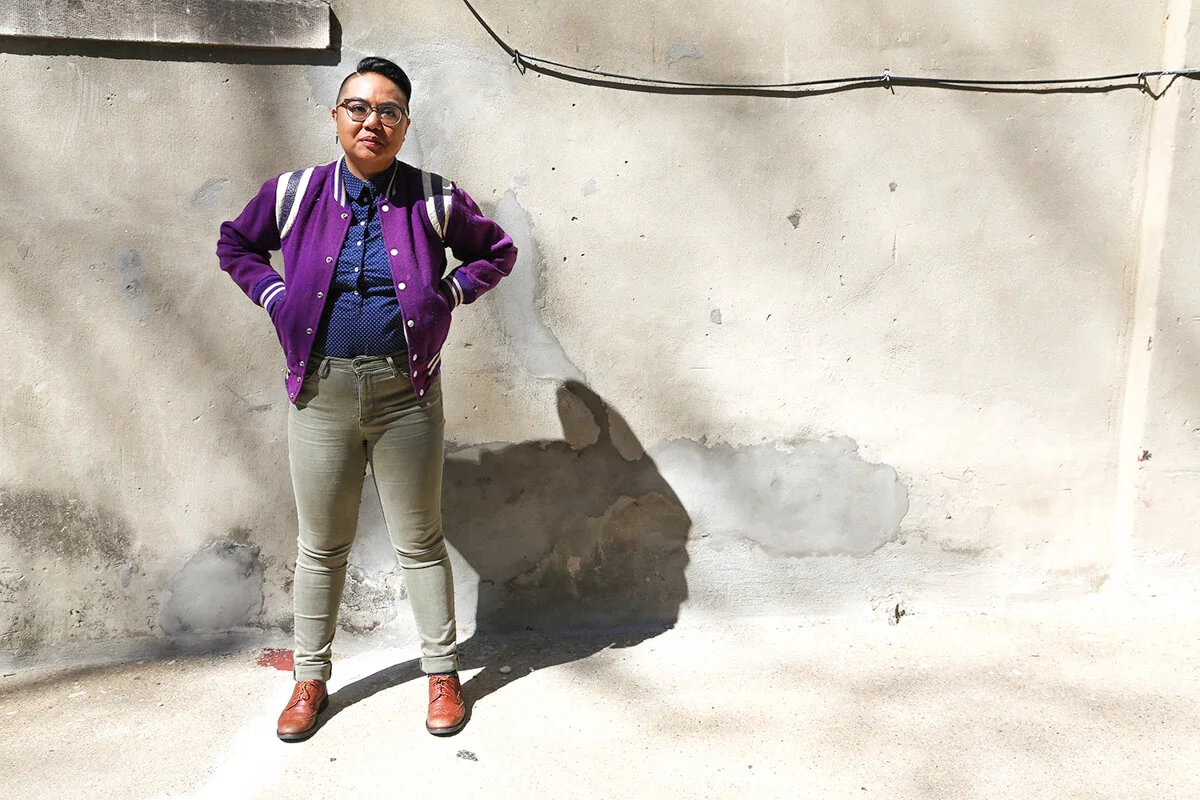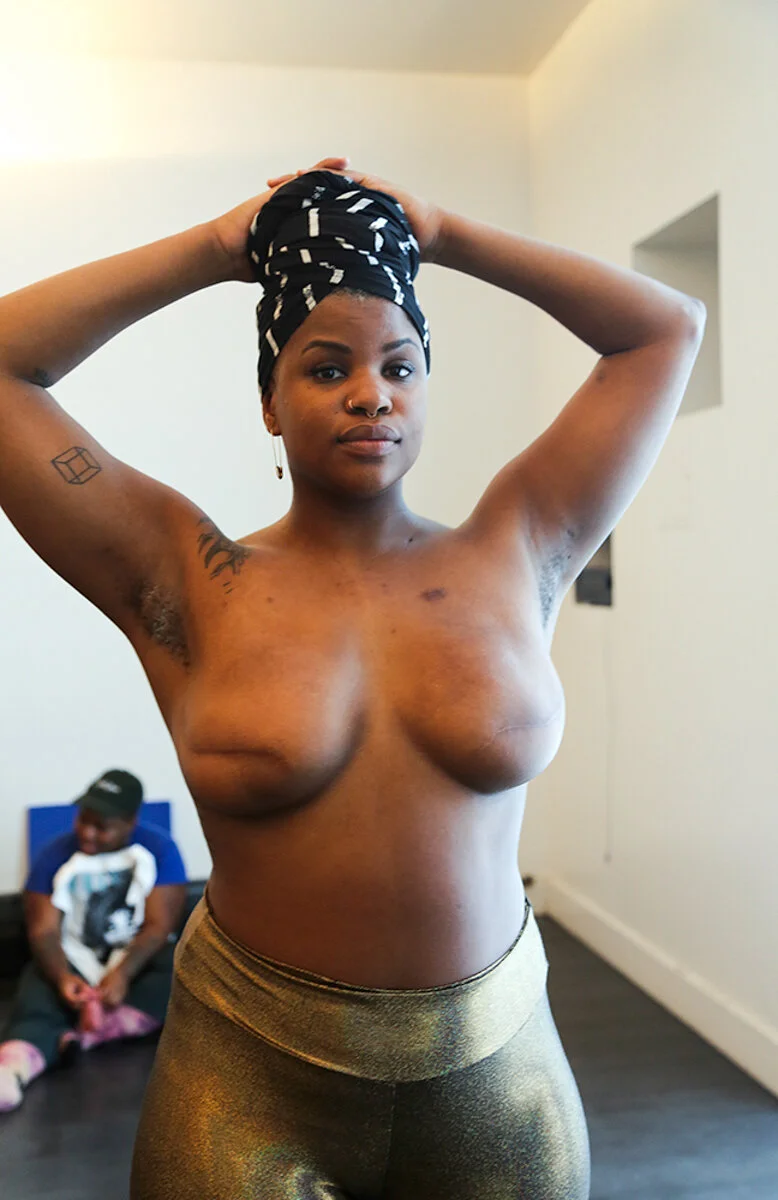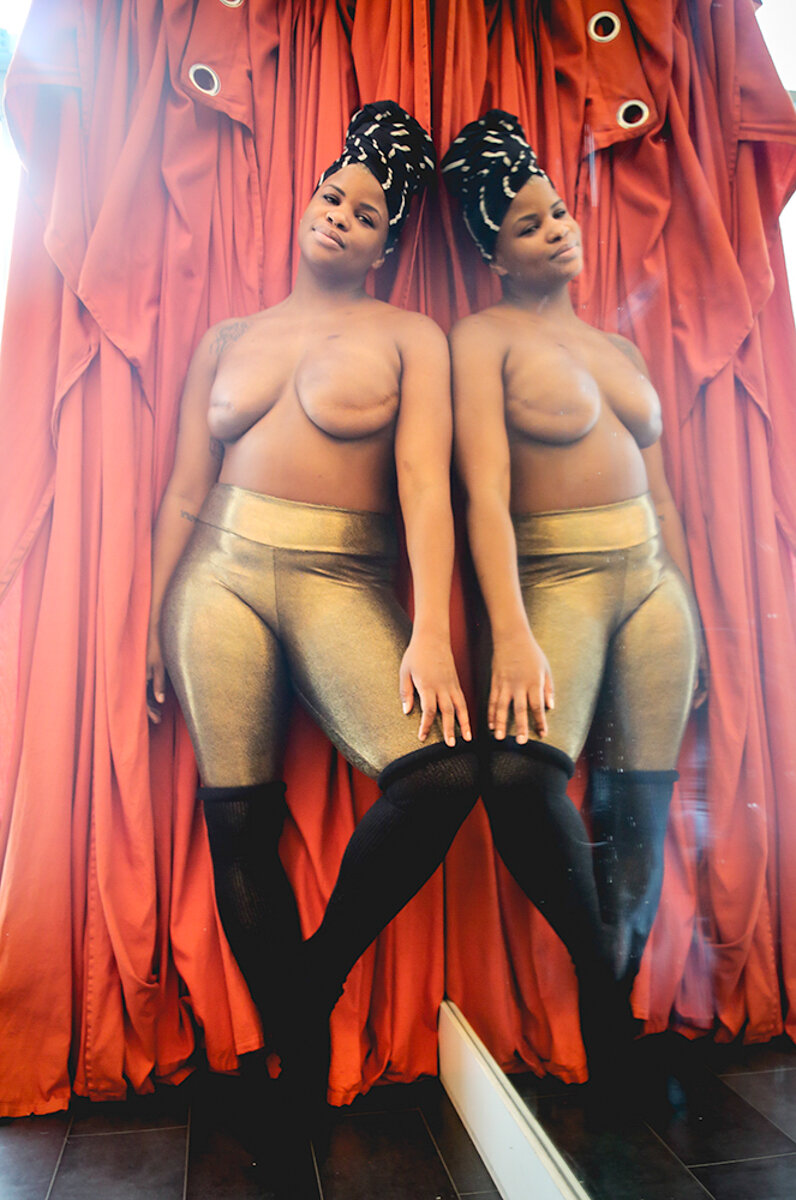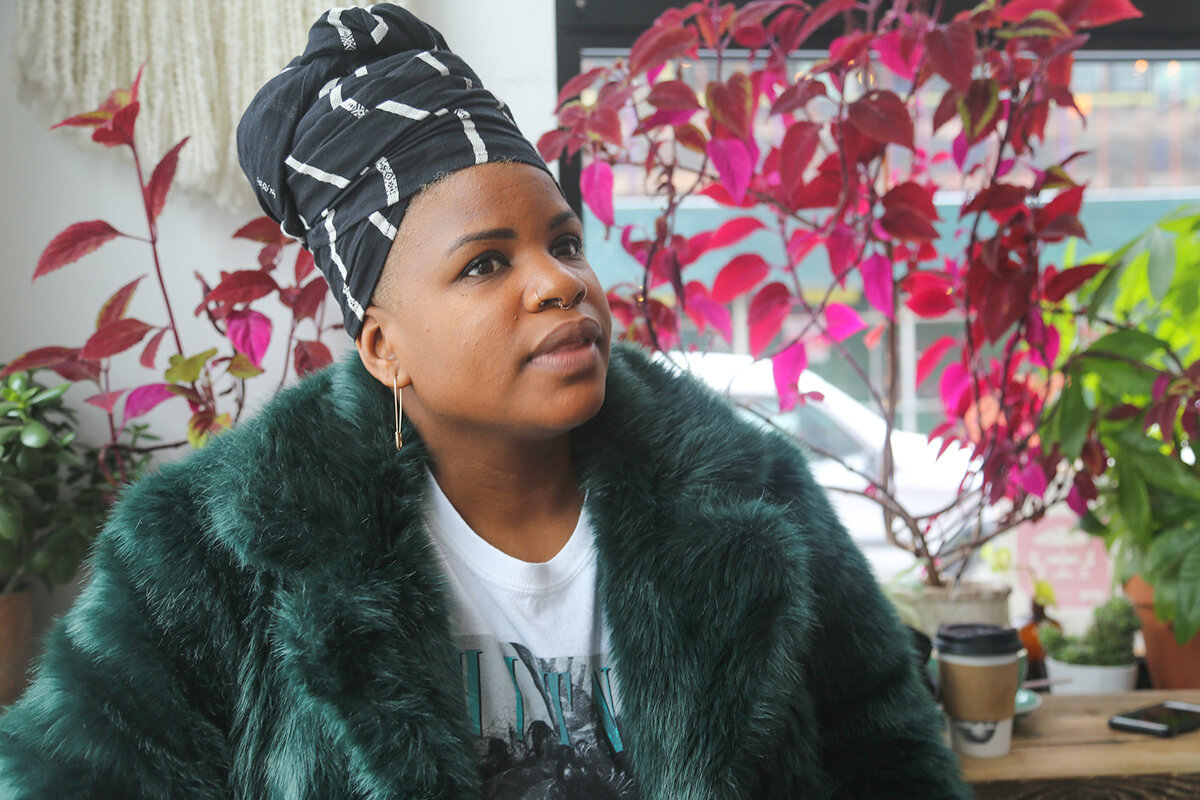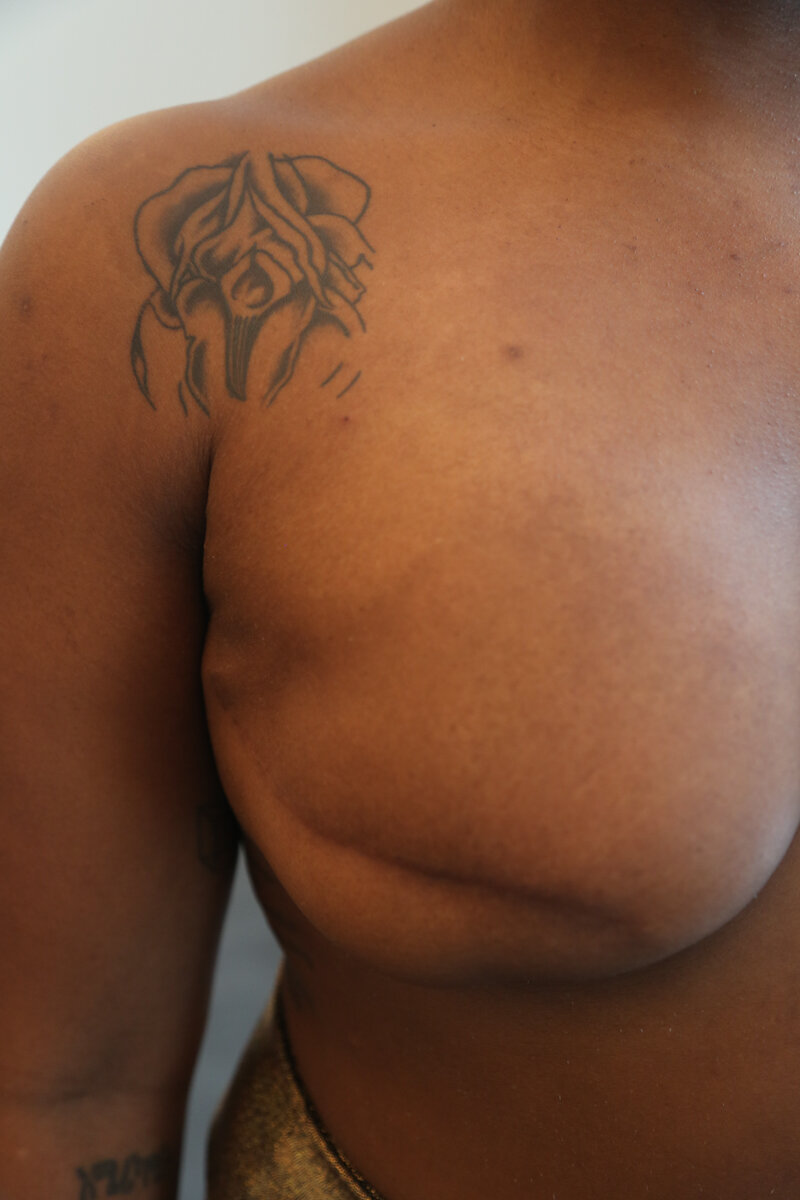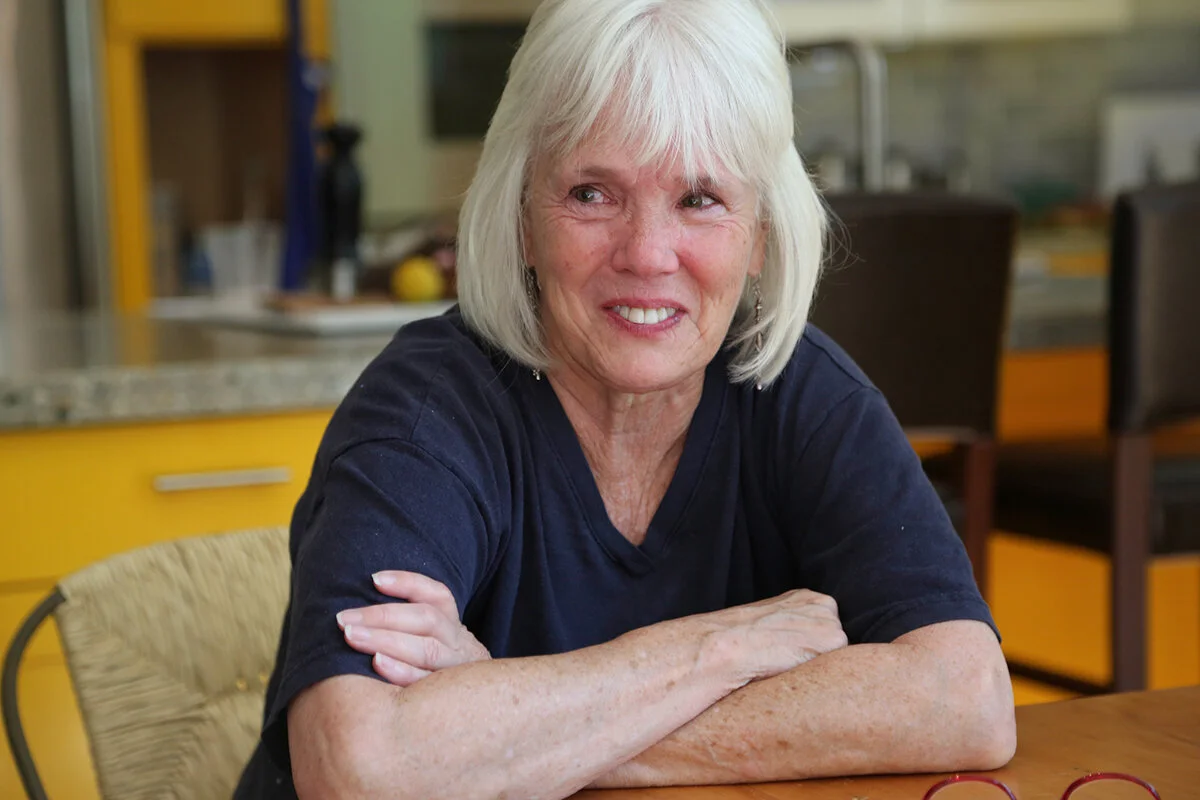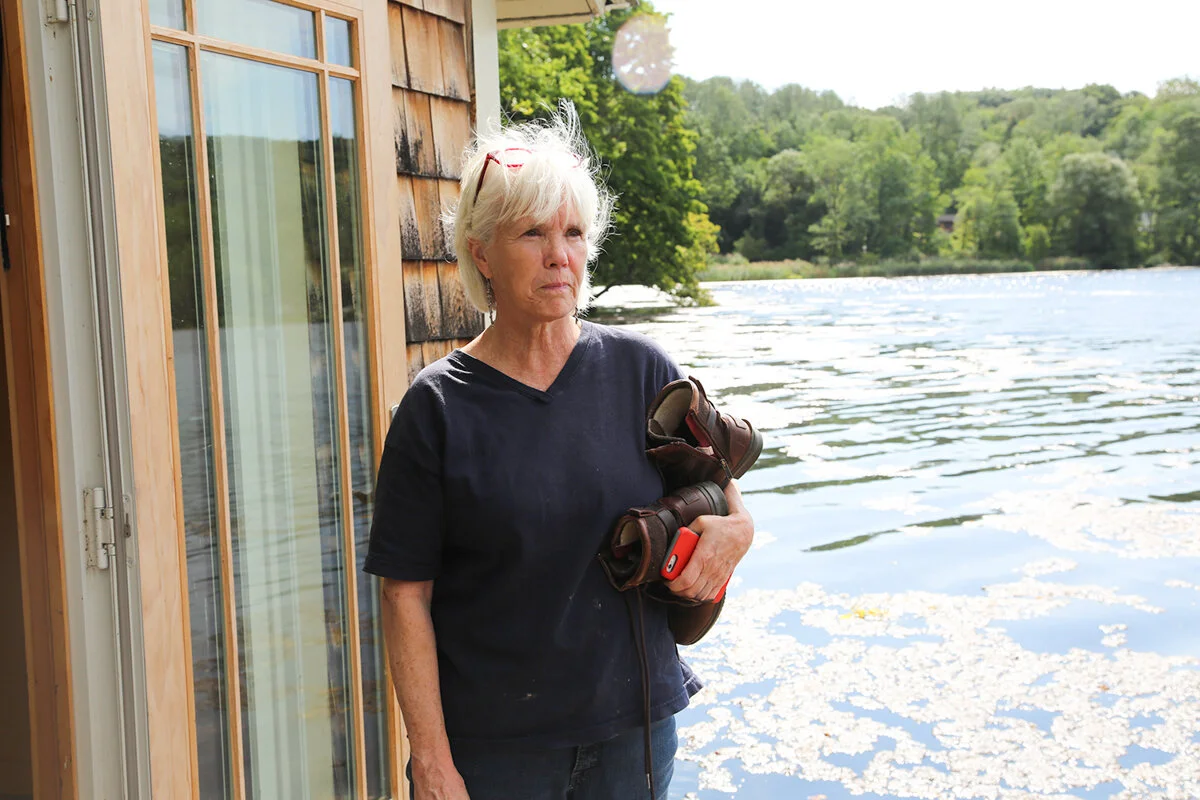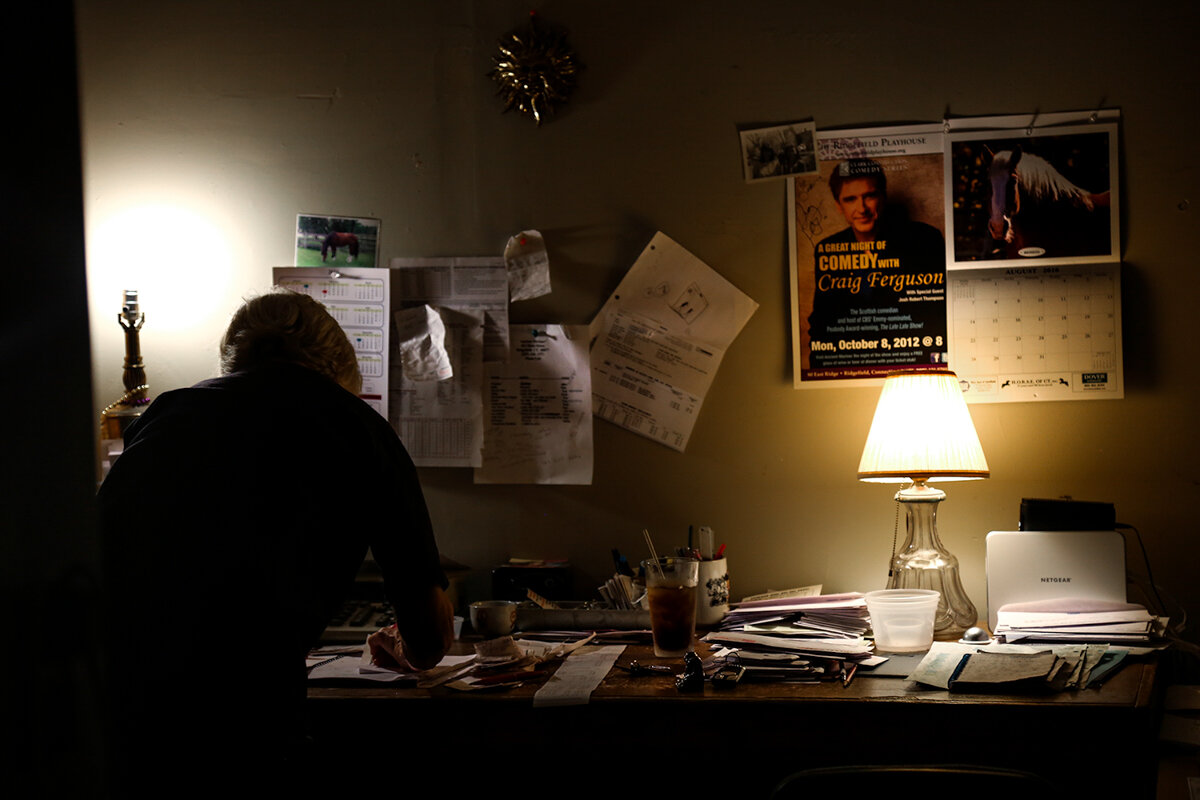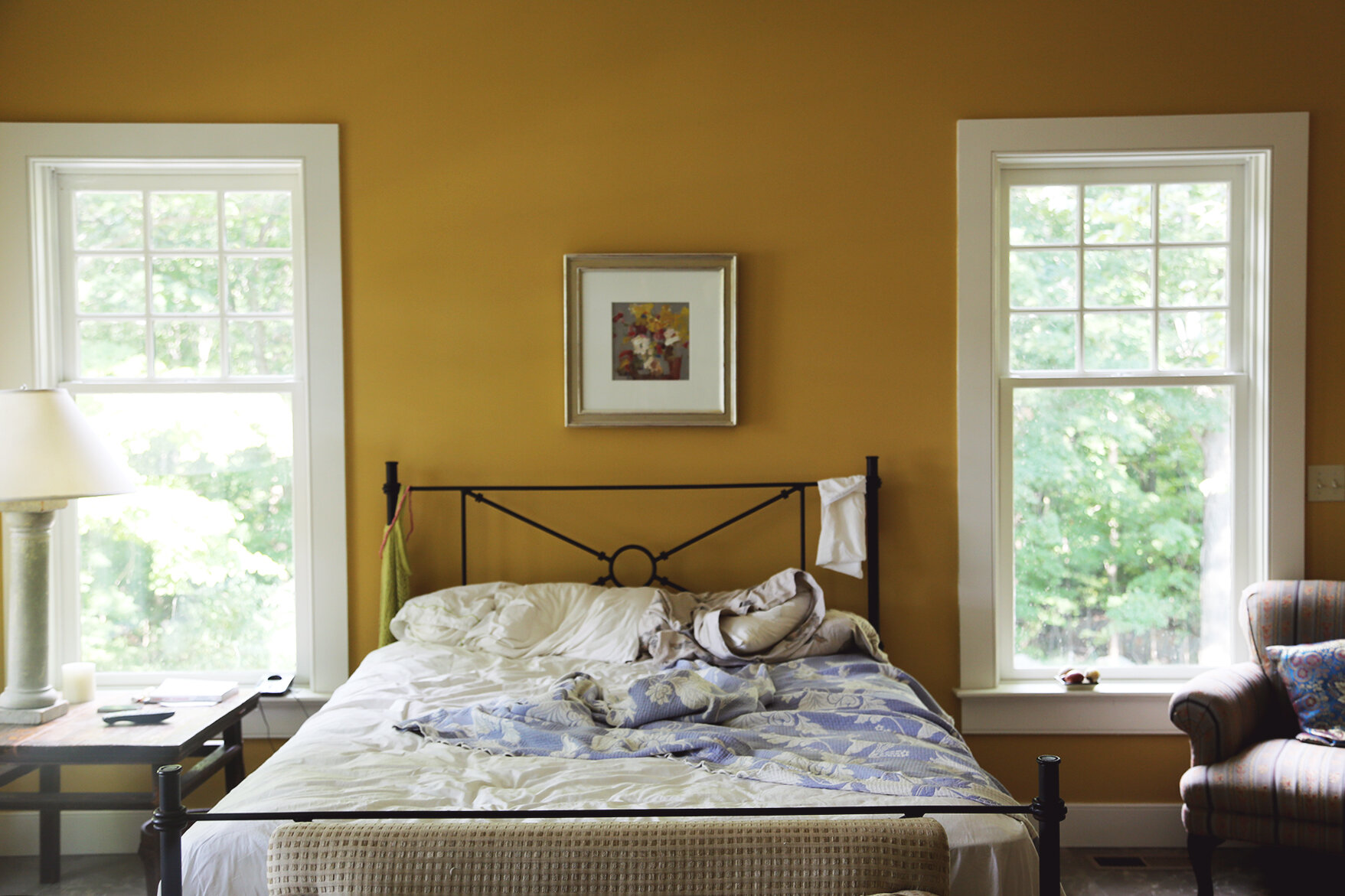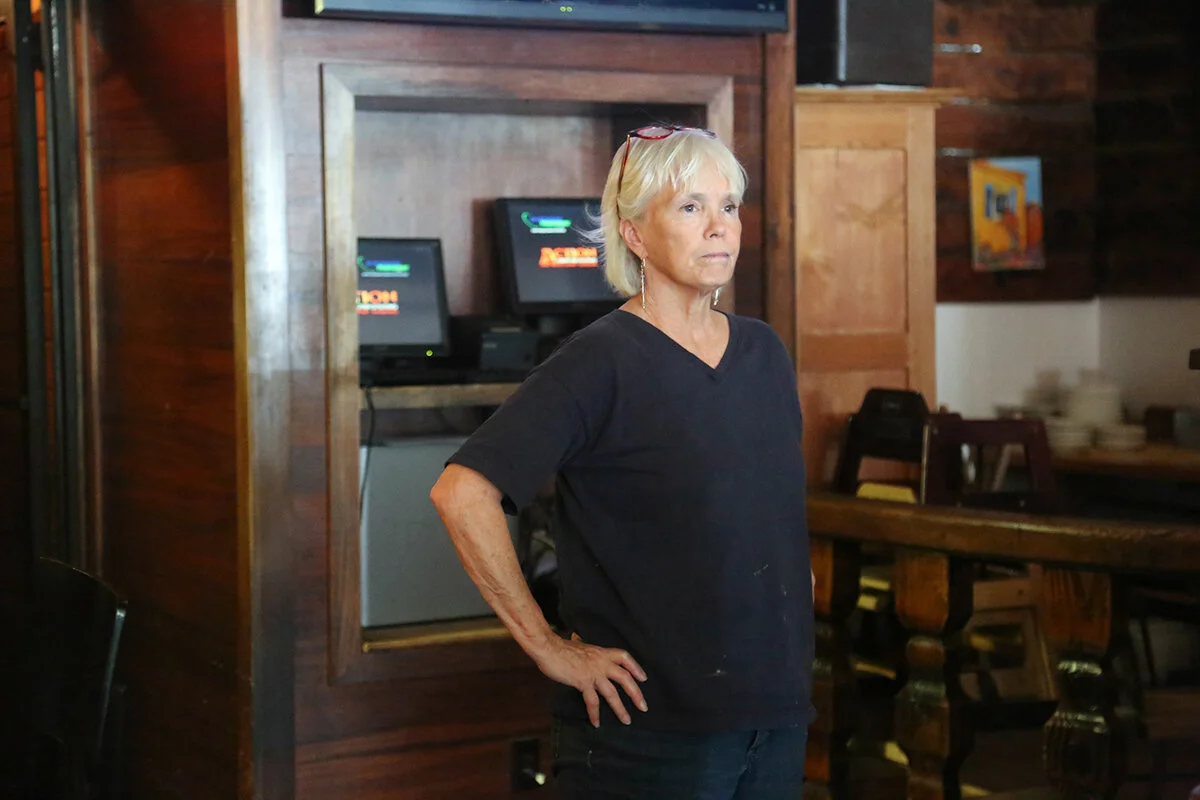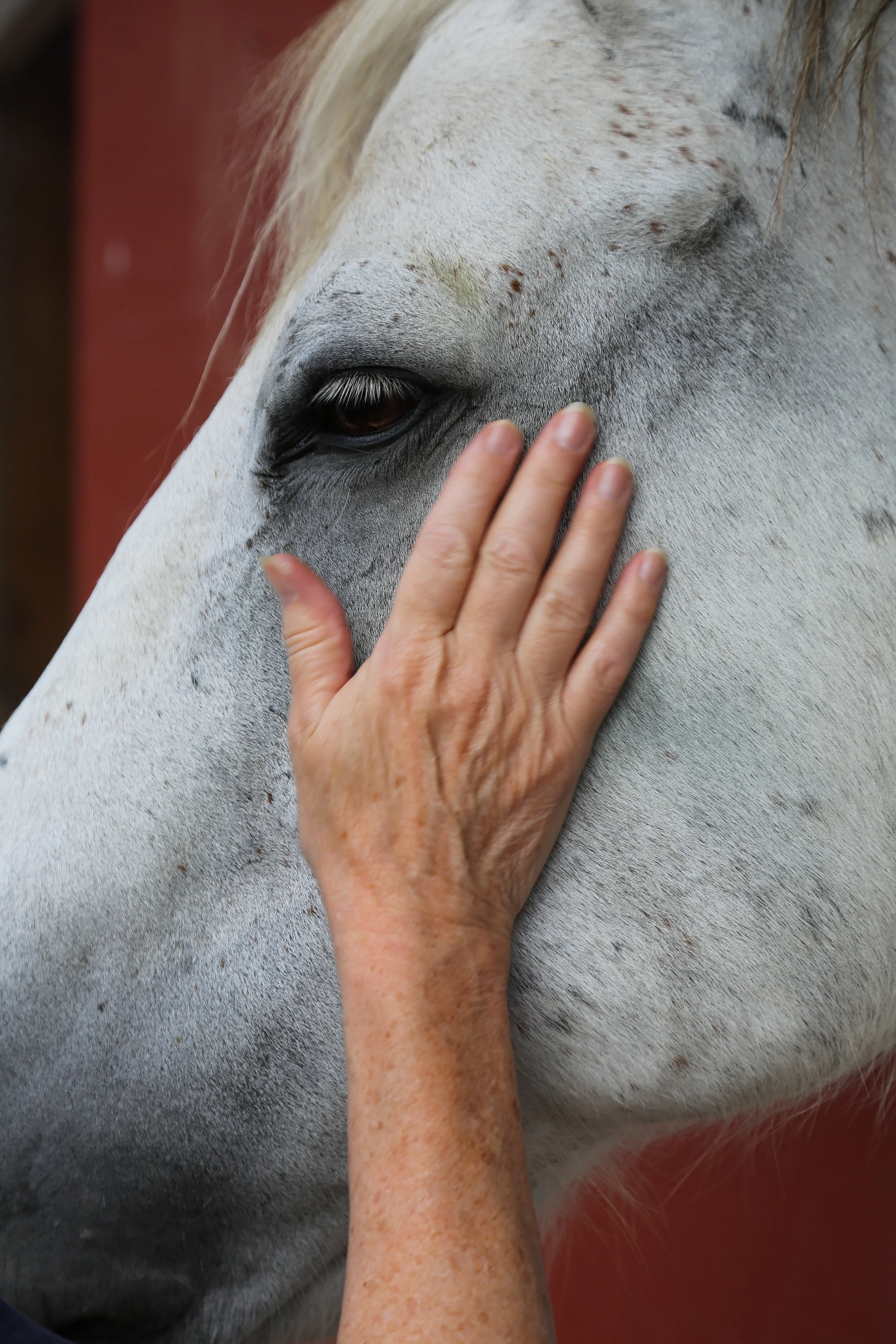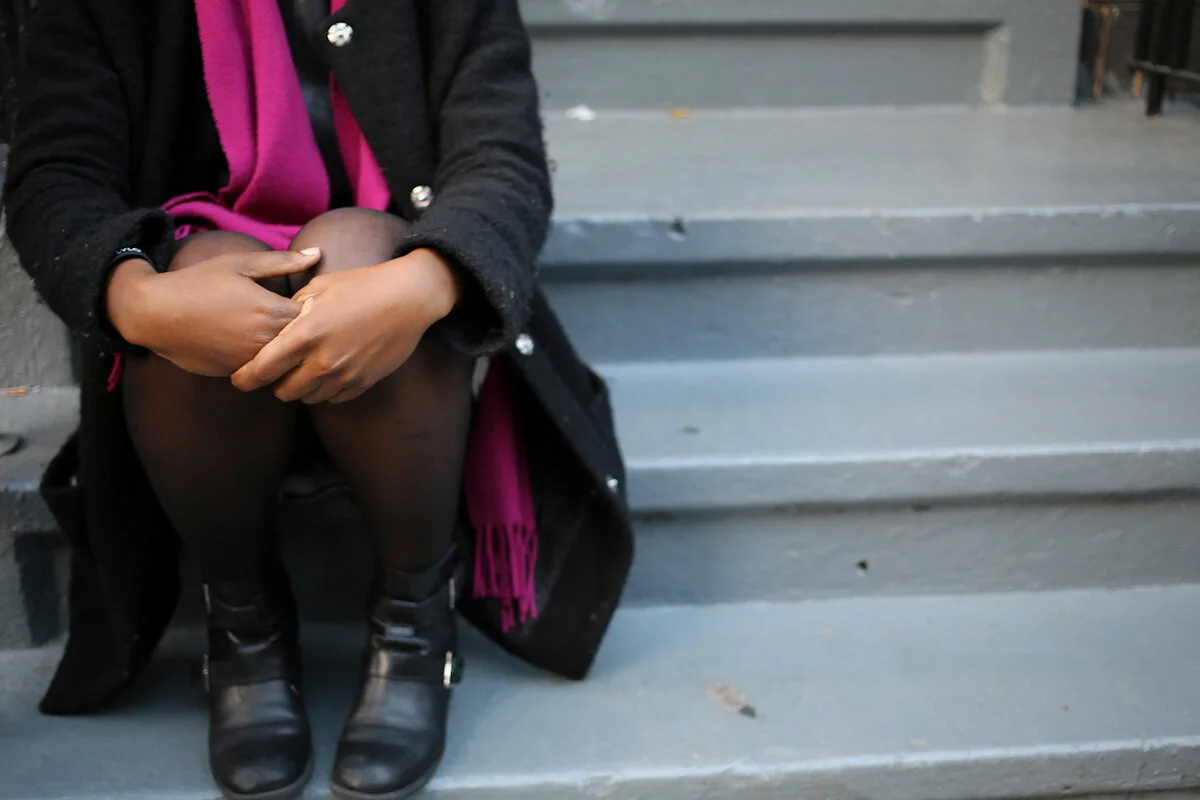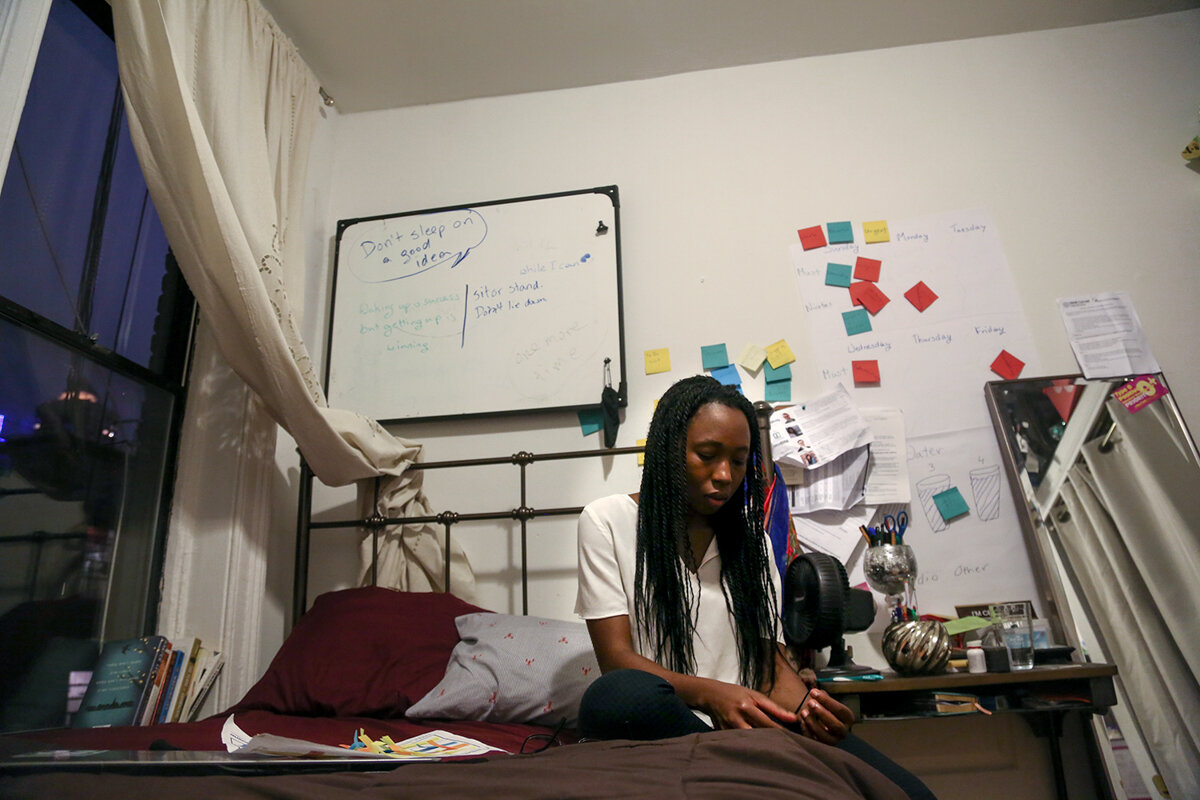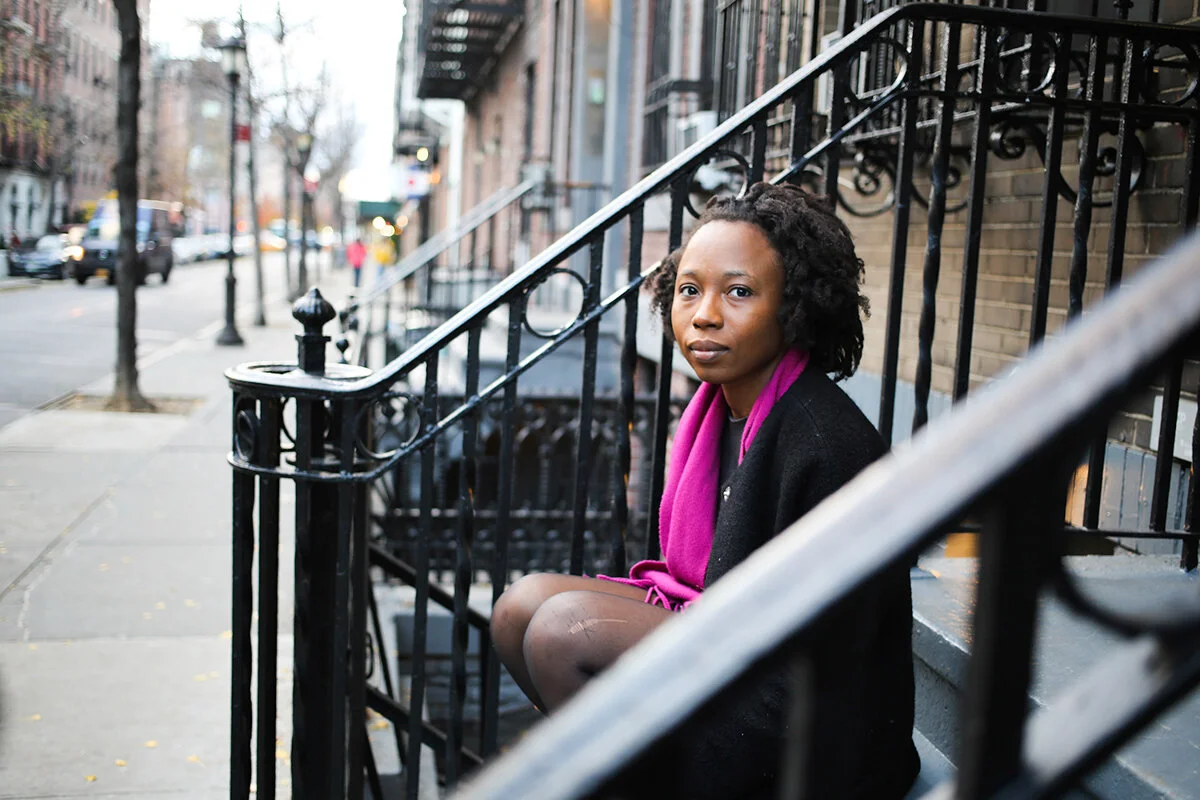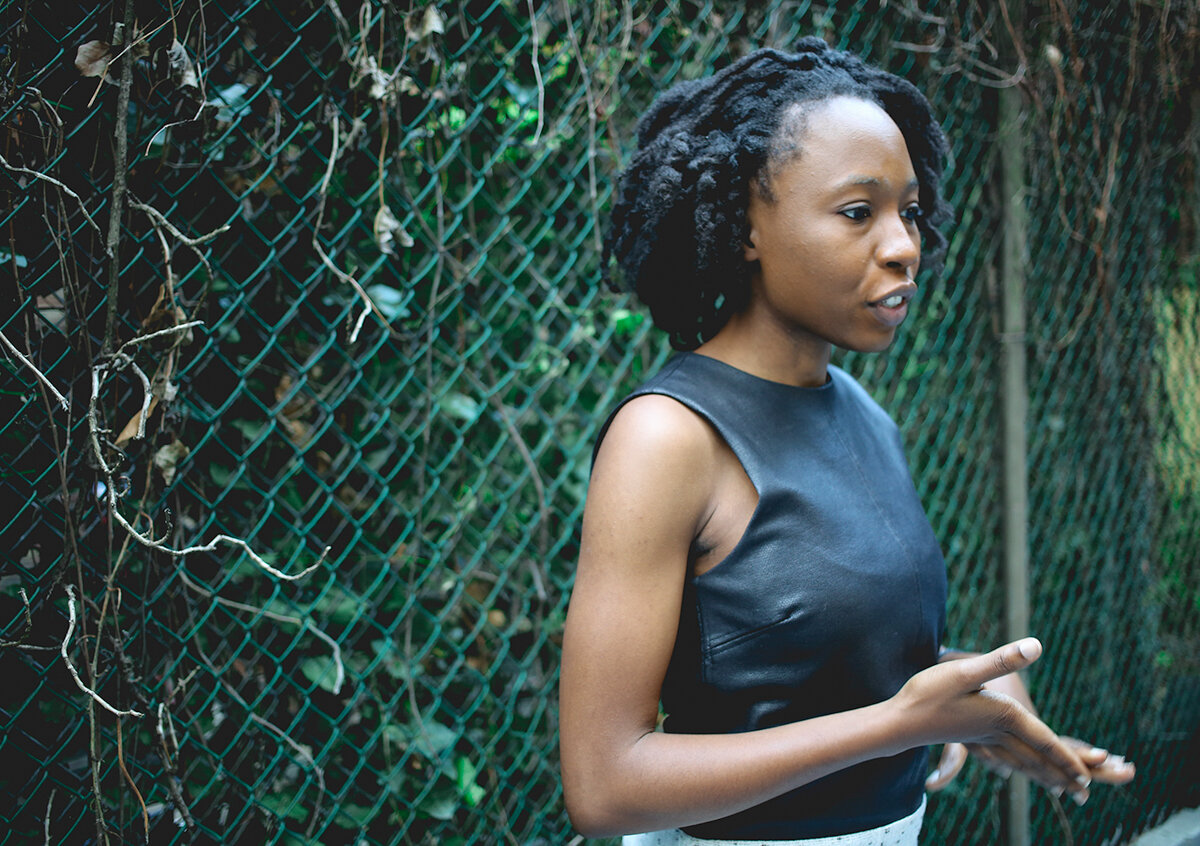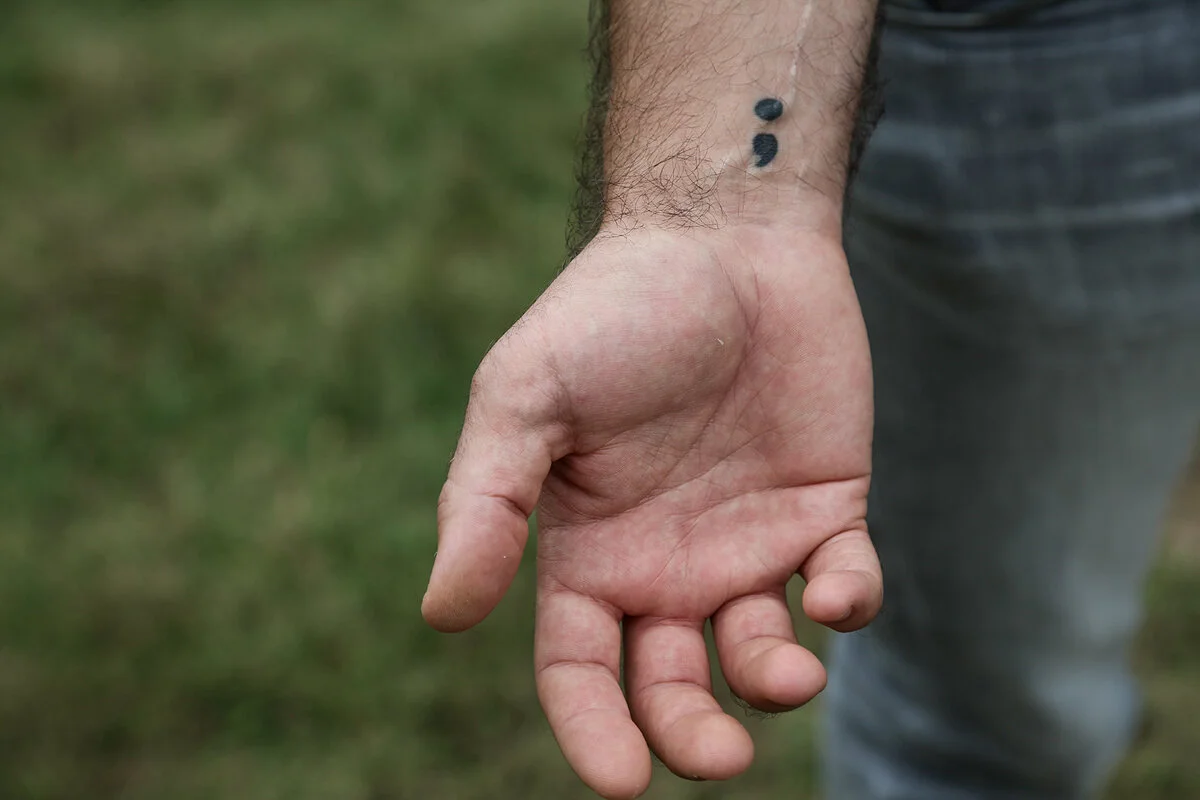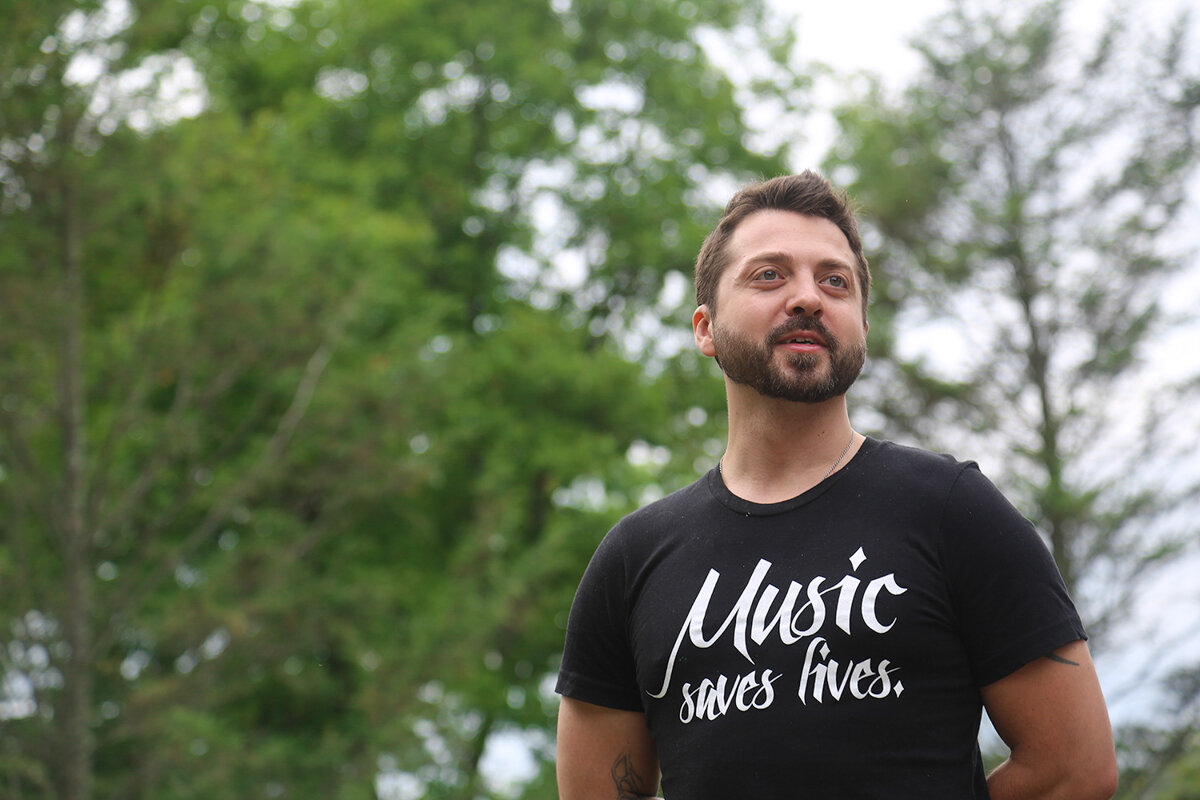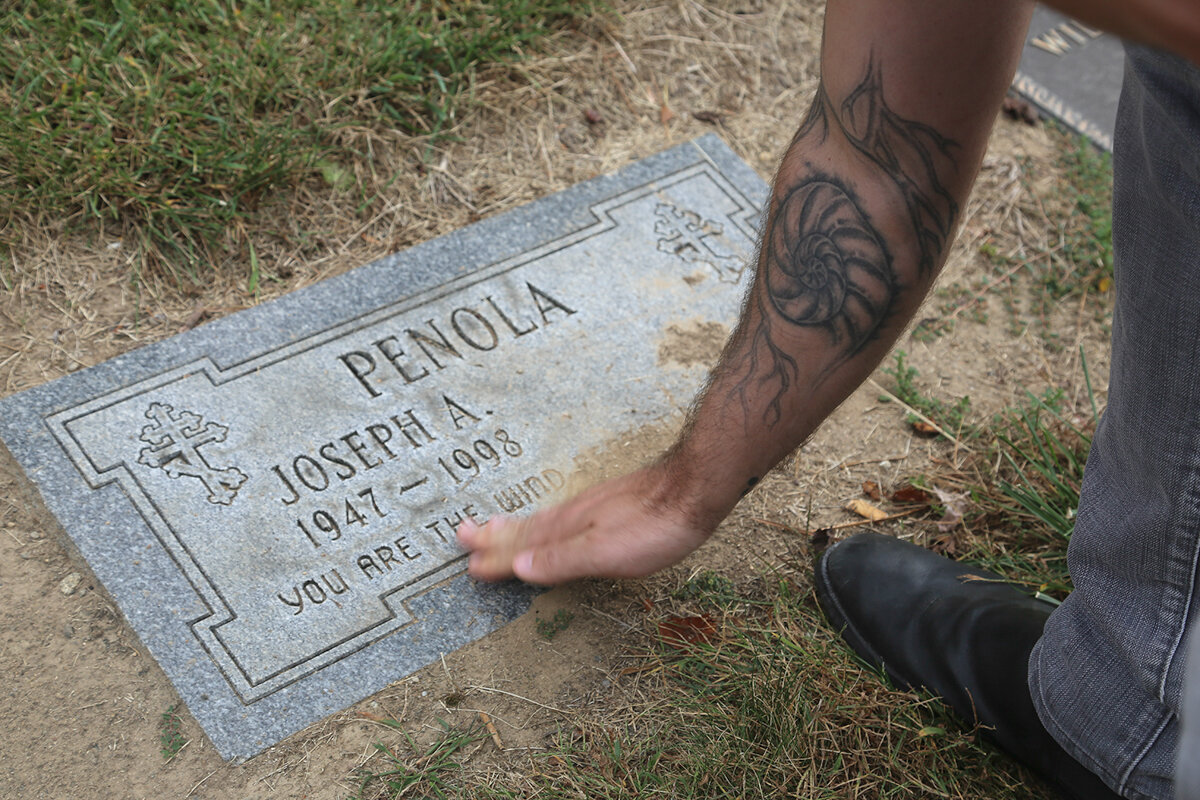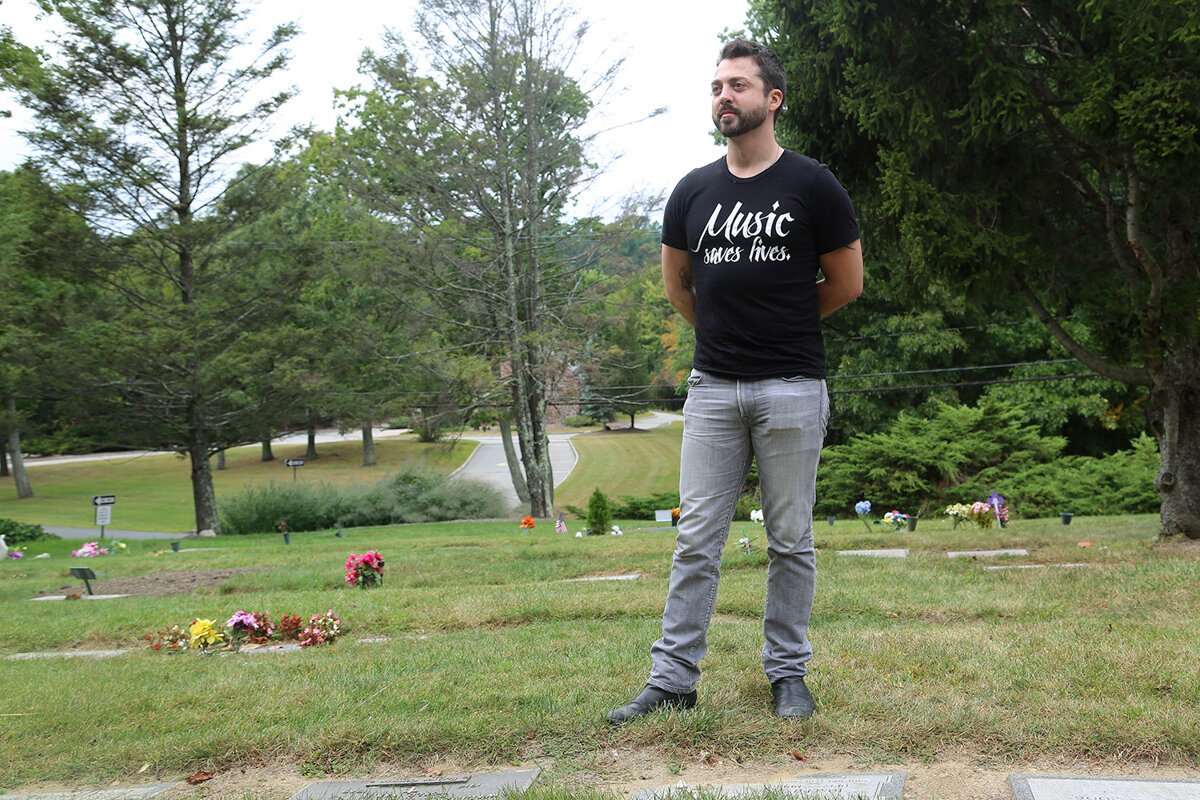This photo series takes an intimate look inside the lives of five different chronic illness patients, exploring the ways that illness experiences are influenced and changed by other aspects of our identities.
Illness & Identity exhibited at CityLore in NYC from June 2-30, 2017.
Artist Statement:
“Illness & Identity” was born out of a desire to better understand the complex ways chronic illness influences all aspects of identity. As we work to raise awareness around chronic illness and invisible disability, we must also work to understand how these experiences affect people as a whole. This project offers a look into the lives of five individuals living with different chronic illnesses and reveals the ways in which their diagnoses may or may not intersect with other aspects of their identities and lives.
As an entry to a more intimate understanding of each person, we asked to meet the individuals featured in this project in spaces of their own. We were welcomed into homes, meditative places, sites of mourning, and of bliss. Each time, we walked away astounded by the vulnerability, tenacity, and true strength each person shared. We were so taken-aback that we sometimes wondered: what have we done to elicit these kinds of responses? Why aren’t all conversations so meaningful?
What became clear was that we had done something very simple that encouraged this open and honest communication. We listened. We engaged.
Marginalized communities, such as the chronic illness community, are often cut out of conversations or simply never given the space or platform on which they can “break their silences.” We do not often hear stories like these because we don’t actively listen. We don’t engage.
This is not a particularly silent group. All five are activists in their own ways, with their own platforms in tow. Jess, Joseph, Jobi, Ericka and AC are all sharing their stories at many intersections of their lives, stories not just about their illnesses but also about their journeys as individuals. Even by sharing with us here, their words have and will create a movement.
Our meetings with them took place over the last eight months, a time where there was and remains a lot of uncertainty, anger, and weariness in this country – a lot of chaos and chatter in the world. Many of us have felt the urgency to be active, to make changes, to heal, but don’t know how or where to do so.
Our hope is that you are able to draw a connection to the stories of these amazing people through their own words, and that you leave inspired to break through your own silences. Most importantly, we hope that you are encouraged to practice active engagement with the communities around you; uplift the lives of others and accept the bounty it reveals.
Thank you Jess, Joseph, Jobi, Ericka and AC. I am so grateful for each of you.
Amanda Crommett
Photographer & Creative Director, Suffering the Silence
AC Dumlao
“It's obvious looking back. I grew up being a very type A, straight A student in a Catholic school. Looking back I can see all that pent-up anxiety and depression that I did have, but I didn't recognize because it was easier to cope that way. It was more regimented, like, 'Oh, it's normal to have anxiety every night and to feel like throwing up in the morning before class, because that's what it means to be a straight A student.'"
“I'm actually thankful looking back on all that happened, because it got me to where I am today. I still deal with anxiety and depression. I am on SSRls now. I still go to therapy. I definitely still have depressive episodes. But I'm just much happier. I really like this idea of the upward spiral. It reminds you of that time five years ago when you were depressed, but it's on two dimensions. It feels the same way, but you're on a higher plane now because you've experienced it before. You can tell yourself, 'You got out of this before."'
Ericka Hart
“A lot of what we hear about cancer, and chronic illness period is, 'They died at this age.' We don't hear when they contracted it, not how long they lived with it, not how they felt throughout it. It's always the end. So, that’s what I focused on, and why I was surprised when I thought, 'Wait, breast cancer happens this young?' I was 28. 28 and broke. Major breast cancer organizations are perpetuating this idea that white, suburban, middle class, middle-aged women have breast cancer and that's it. Someone who has two kids and a picket fence ... I didn’t have that.”
"We ended our marriage in March of this year. Strangely, after all of that loss, I never really felt much loss for my breasts. I never really had much of a connection to them, any sort of womanhood connection I mean. I also have various gender identity, and I just never was like, 'Oh, my breasts make me feel like a woman.' Other people always had something to say about my breasts. Other people always said, 'I love how big they are,' or 'I love how they’re shaped,' or 'I love your cleavage.' It was always someone else commenting. It was almost like they weren’t mine."
Jessica Wilmont
“When I was a little girl, I had an allergic reaction to strep throat. It was the type of thing that just had to run its course, and it ended up going all the way from third to ninth grade. It was debilitating. So sometimes, I think I might be strong now because I've done this all before.”
“I've had two people really close to me commit suicide. And everyone is always telling me how mad at them they are, or what a cowardly thing that is to do. But I always think, we can't possibly know because we don't do it, we aren't going to ever do it. We can't possibly know how they feel. And I think the same thing about other people not being able to understand how I feel. So, I don't talk much about it."
Jobi Calixte
“For a long time, my illness was the thing I always had to hide from. I wouldn't tell people what I had because I didn't want their expectations for me to go lower. I feel this need to do more, do more, do more before I run out of time. It's strange - I have this obsession with time.”
“I'm a woman. I don't want anyone to take away my womanhood, but I also don't want it to be a limiting factor. I want to be seen as a complete individual. I've always said I'm not disabled. I don't want to be seen as someone who cannot do things. But I'm getting to a point where I have to accept that I'm disabled, some days I'm not going to be okay. And that has to be okay. It's the same thing. Being a woman. Being black. It's another part of my identity. I don't want someone to strip that from me, I am who I am because of my experiences, but sometimes those experiences are hard and scary to accept.”
Joseph Penola
“For two days straight, if I was conscious, not even just standing up, if I was awake, I had a drink in my hand. And at some point, my body just gave up. It was in one of the sleazy hotel rooms down in Seaside in New Jersey. I was unresponsive. At some point my very good friend, Rich, who is now a police officer, coincidentally or maybe serendipitously, put me in the shower and blasted cold water on me. I’m here now, but that was as close as I got. I wish I could say that was a wake up call, but it wasn’t."
“I just wanted to be understood. I didn't want to feel alone. And despite their efforts, I wasn't getting that from family or friends. I got that from music. My dad, being who he was, introduced me to comics and also introduced me to Star Wars, which is very much a religion in my family. All I listened to was Star Wars soundtracks for the longest time, and forever, that was the music for me."


